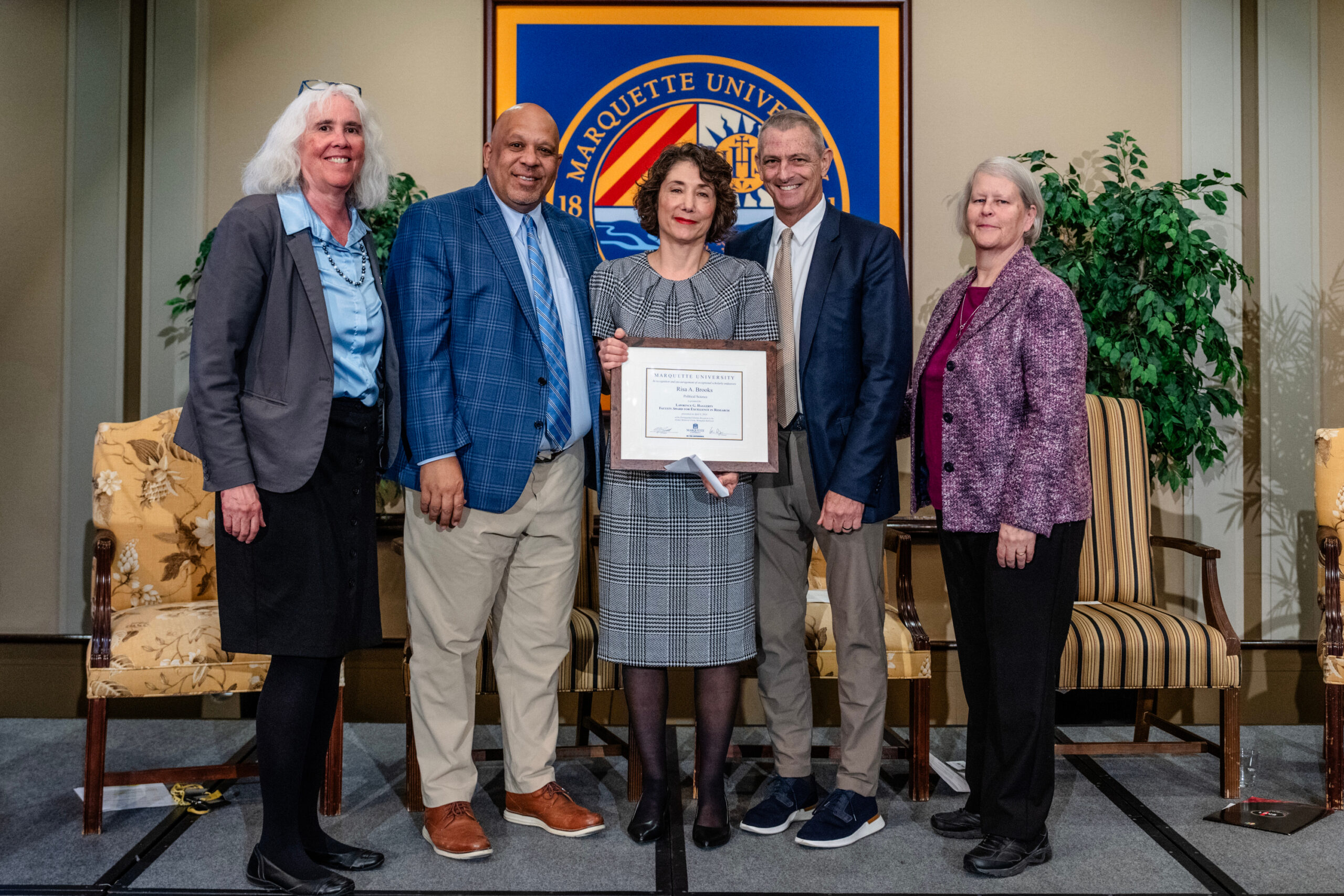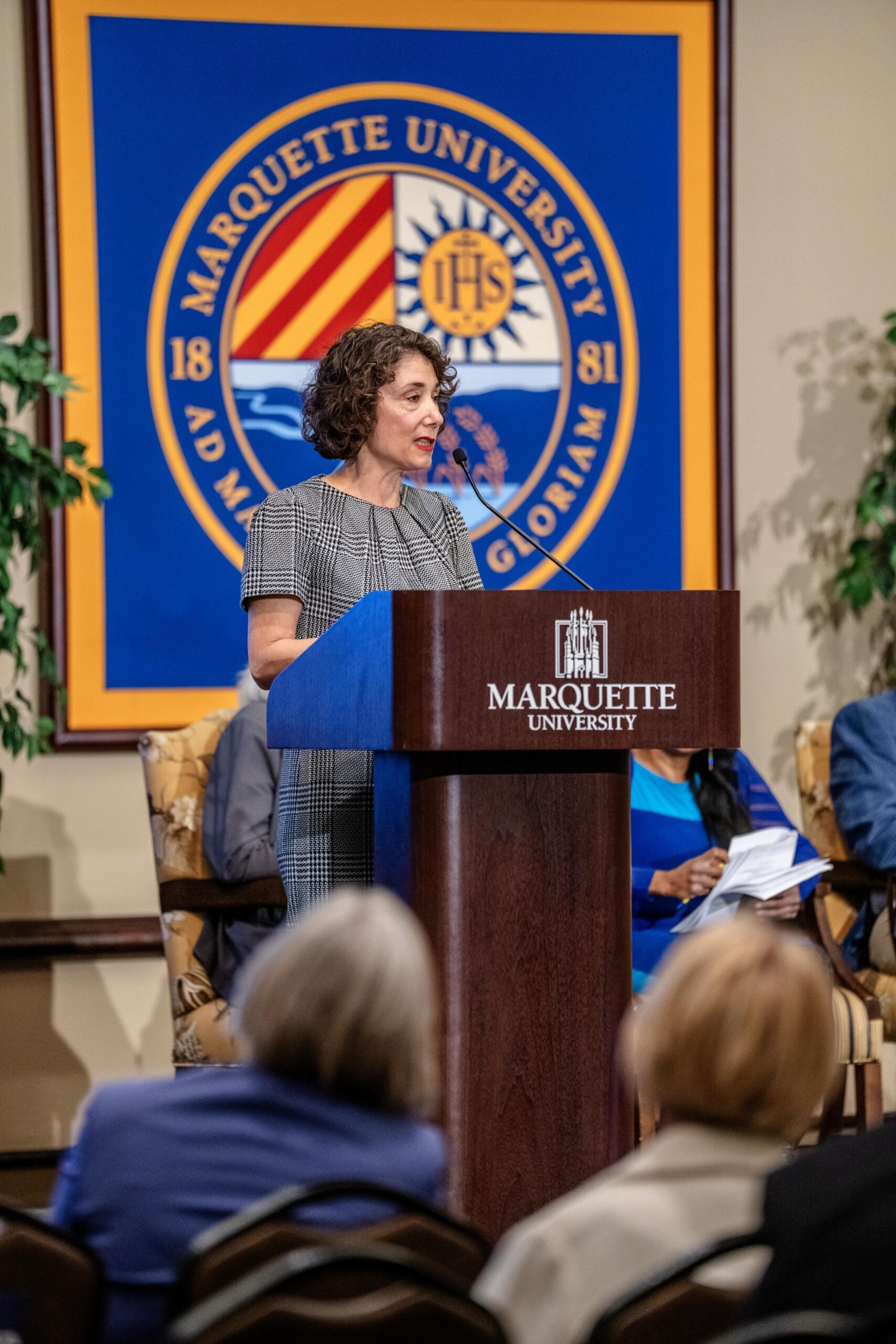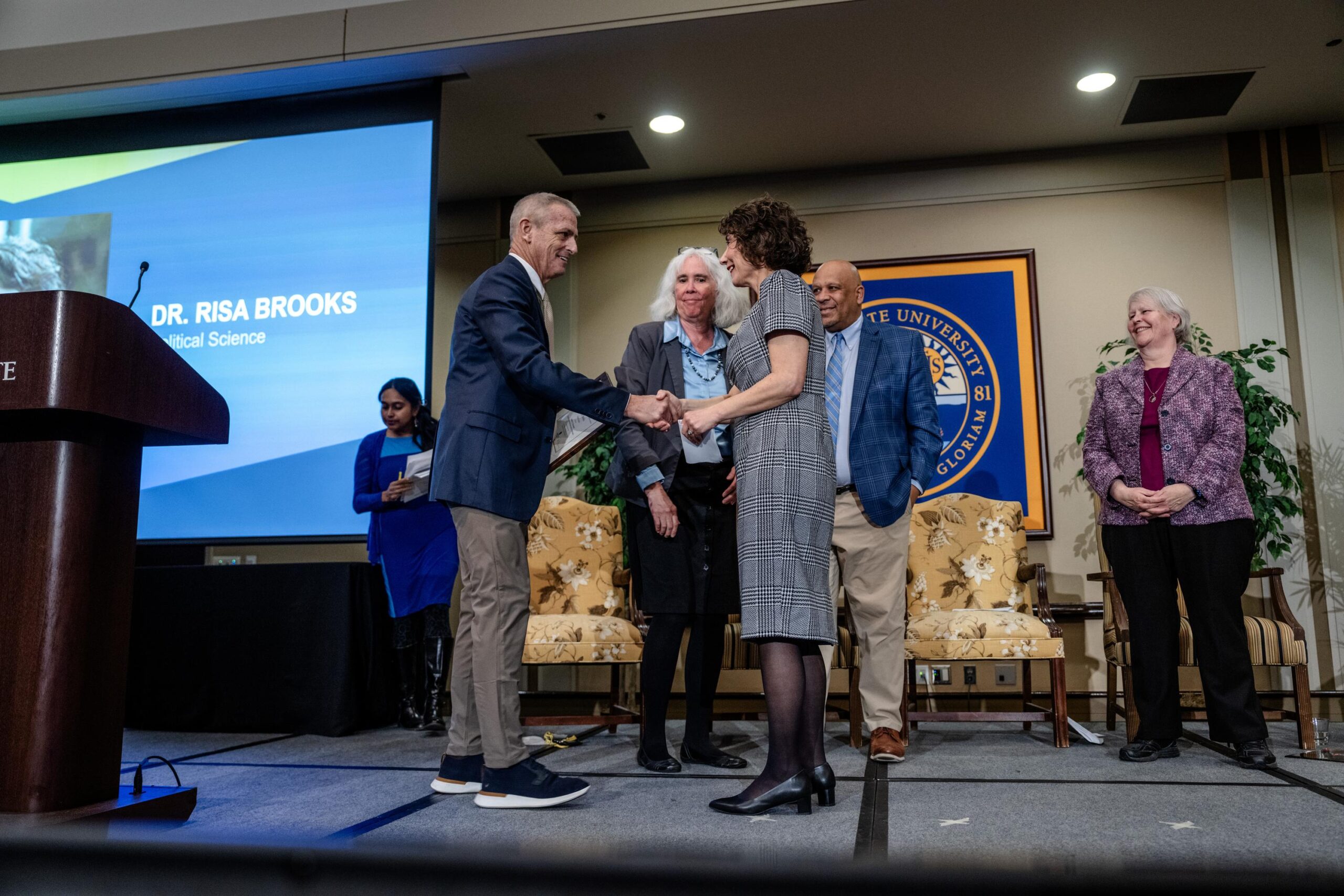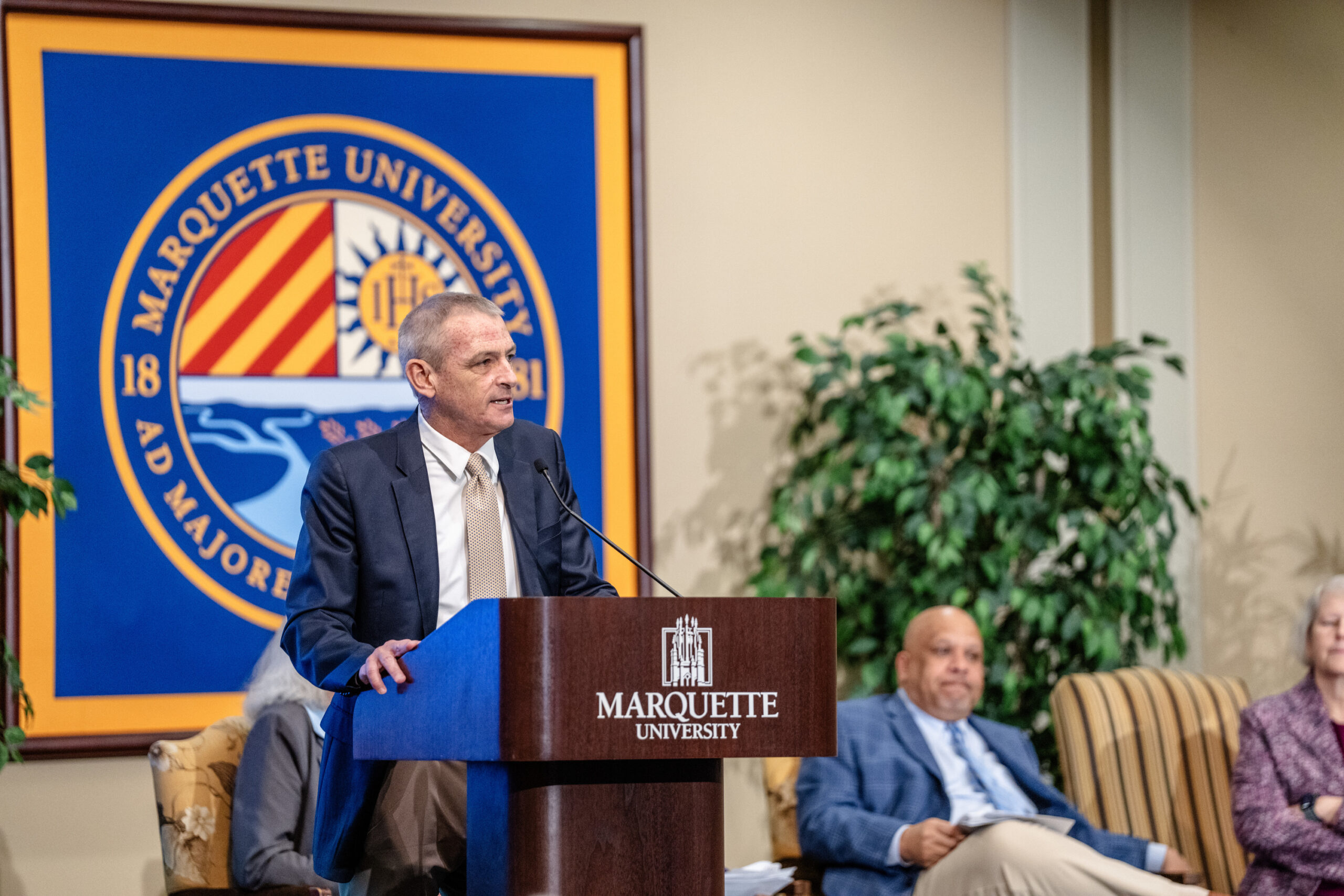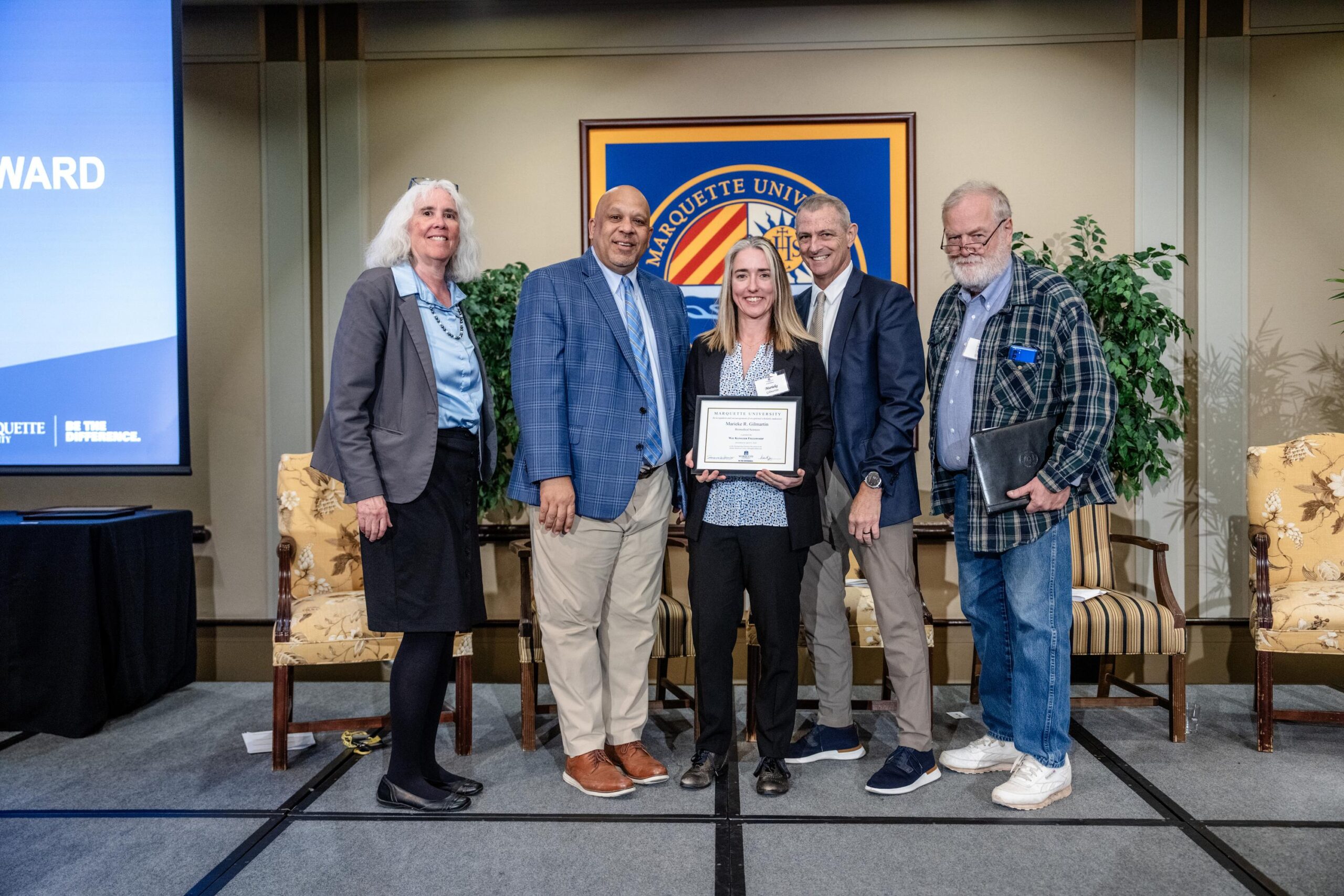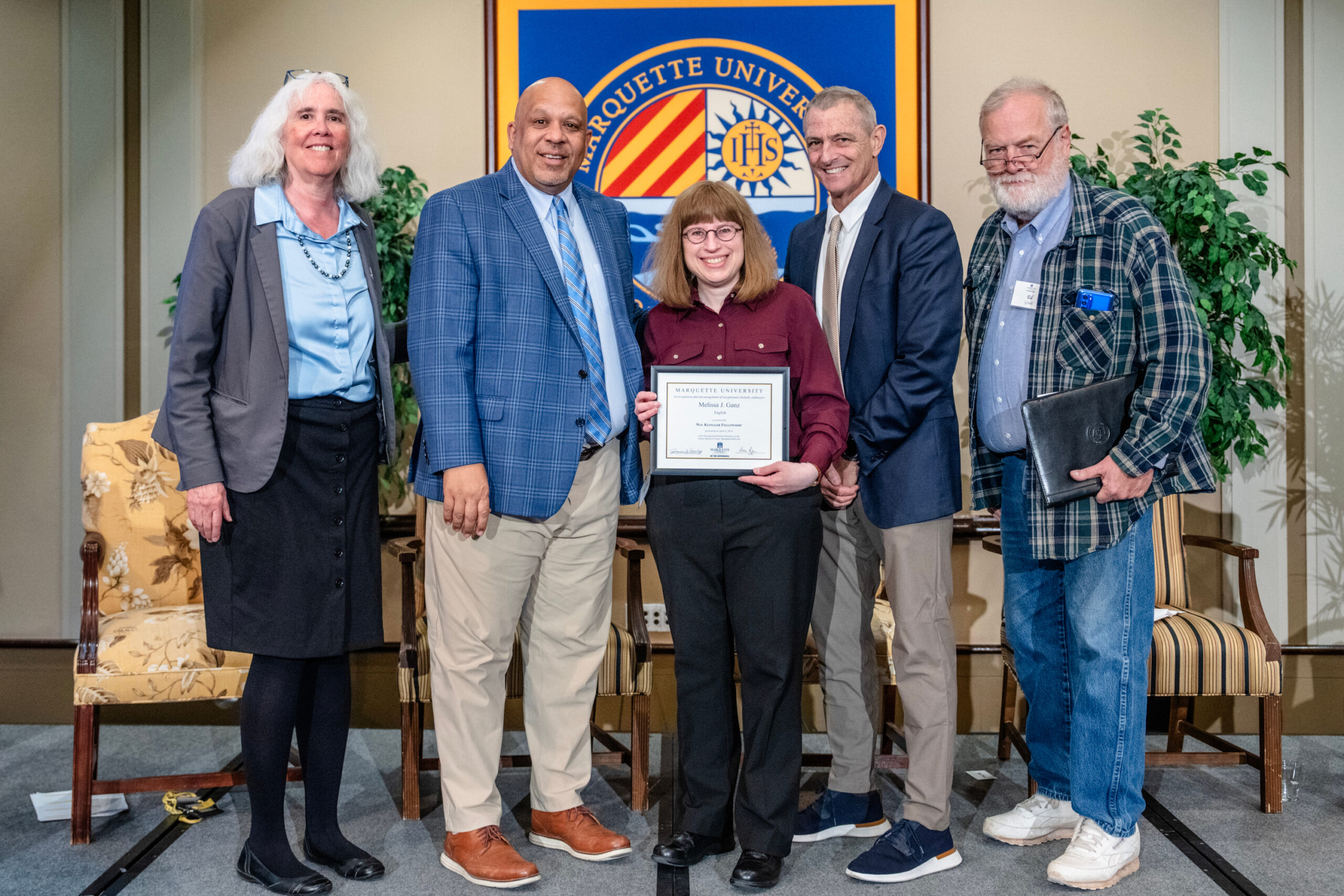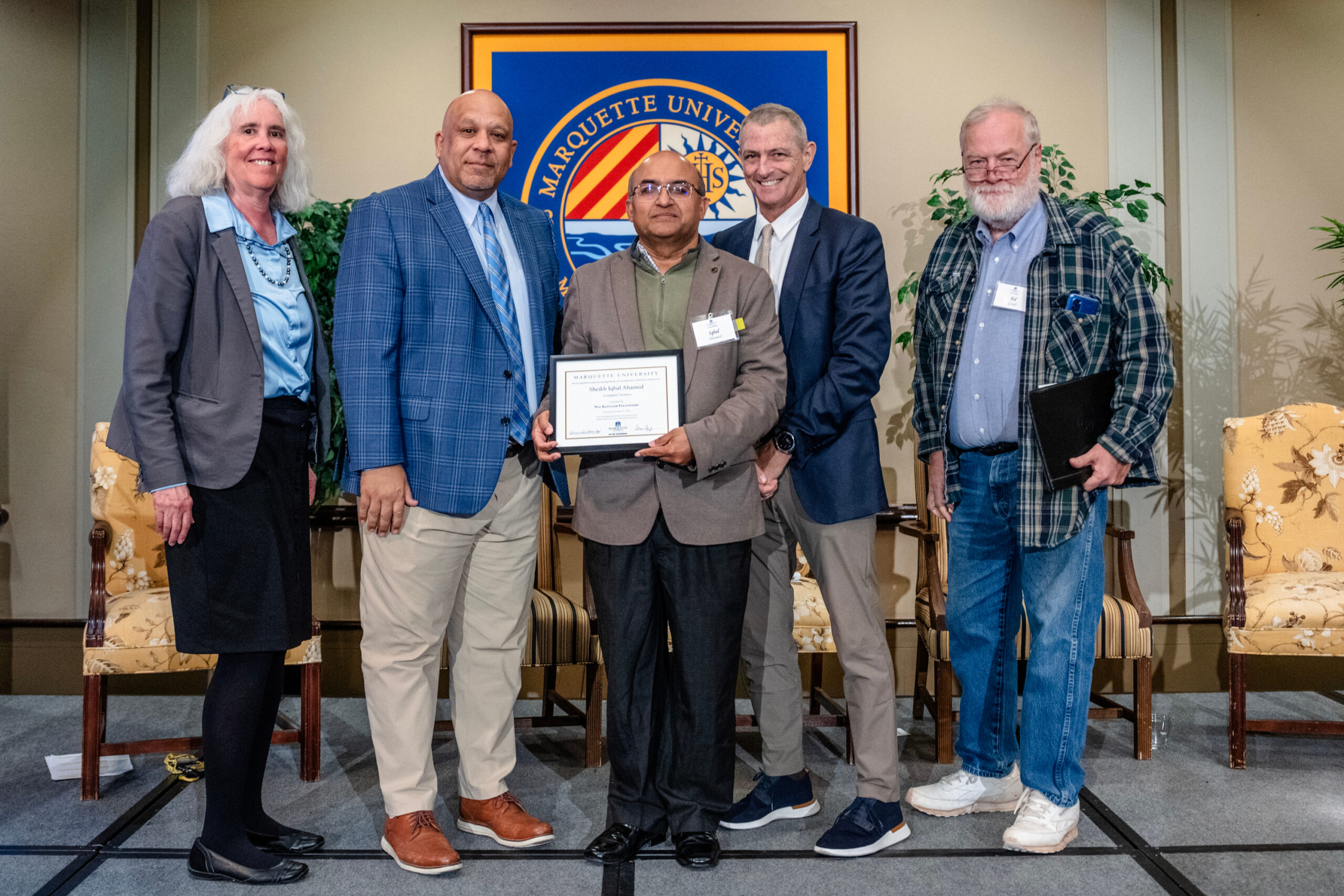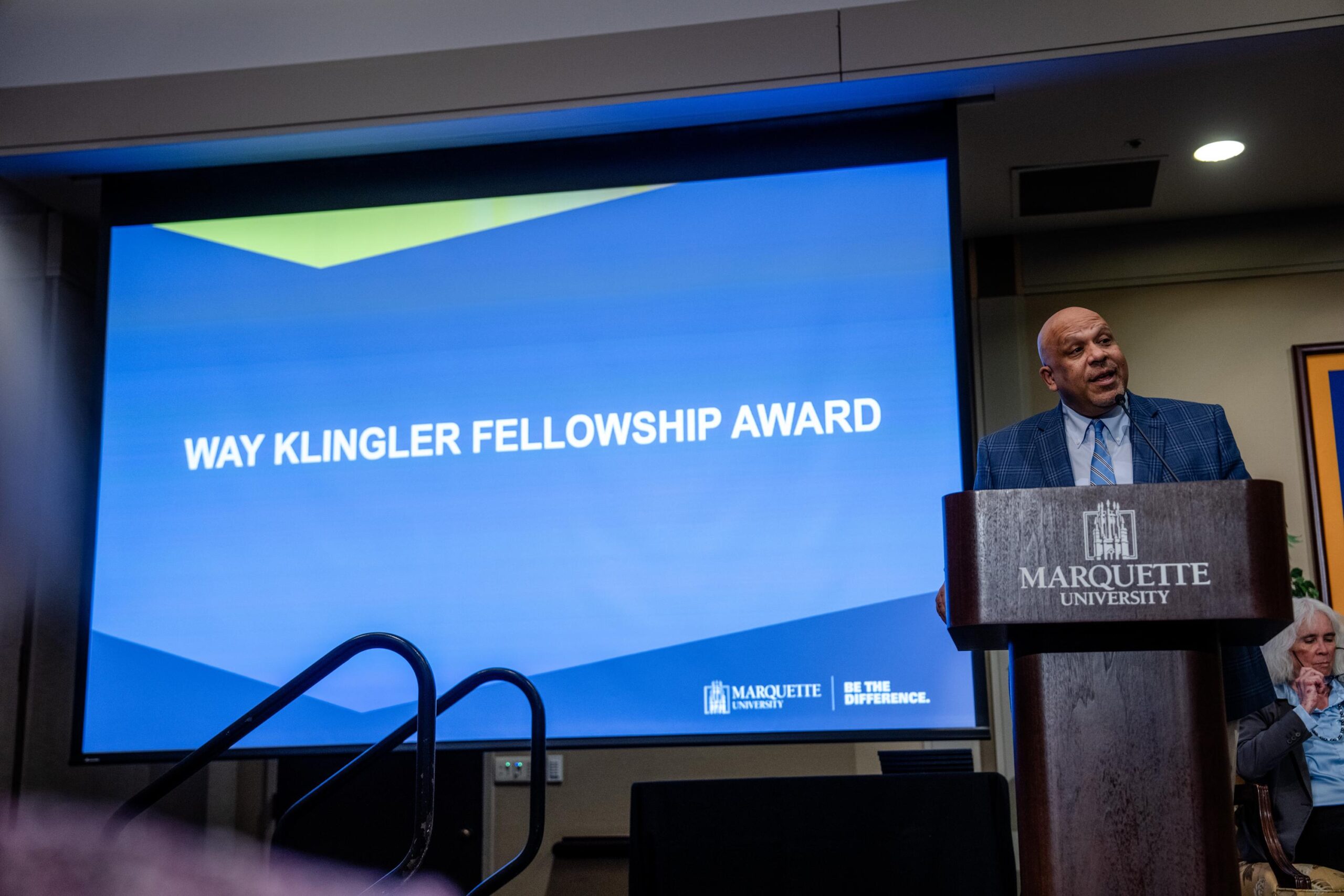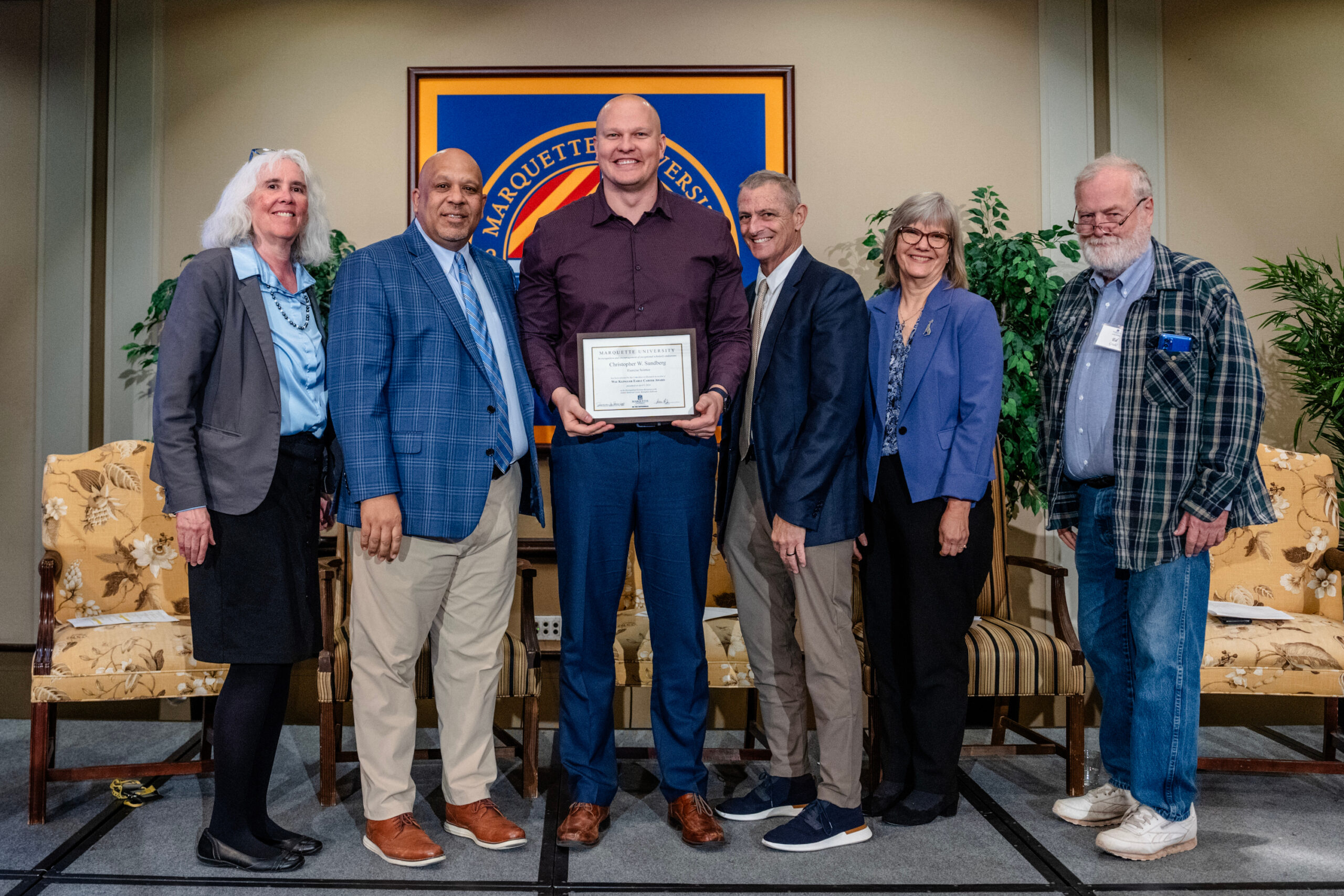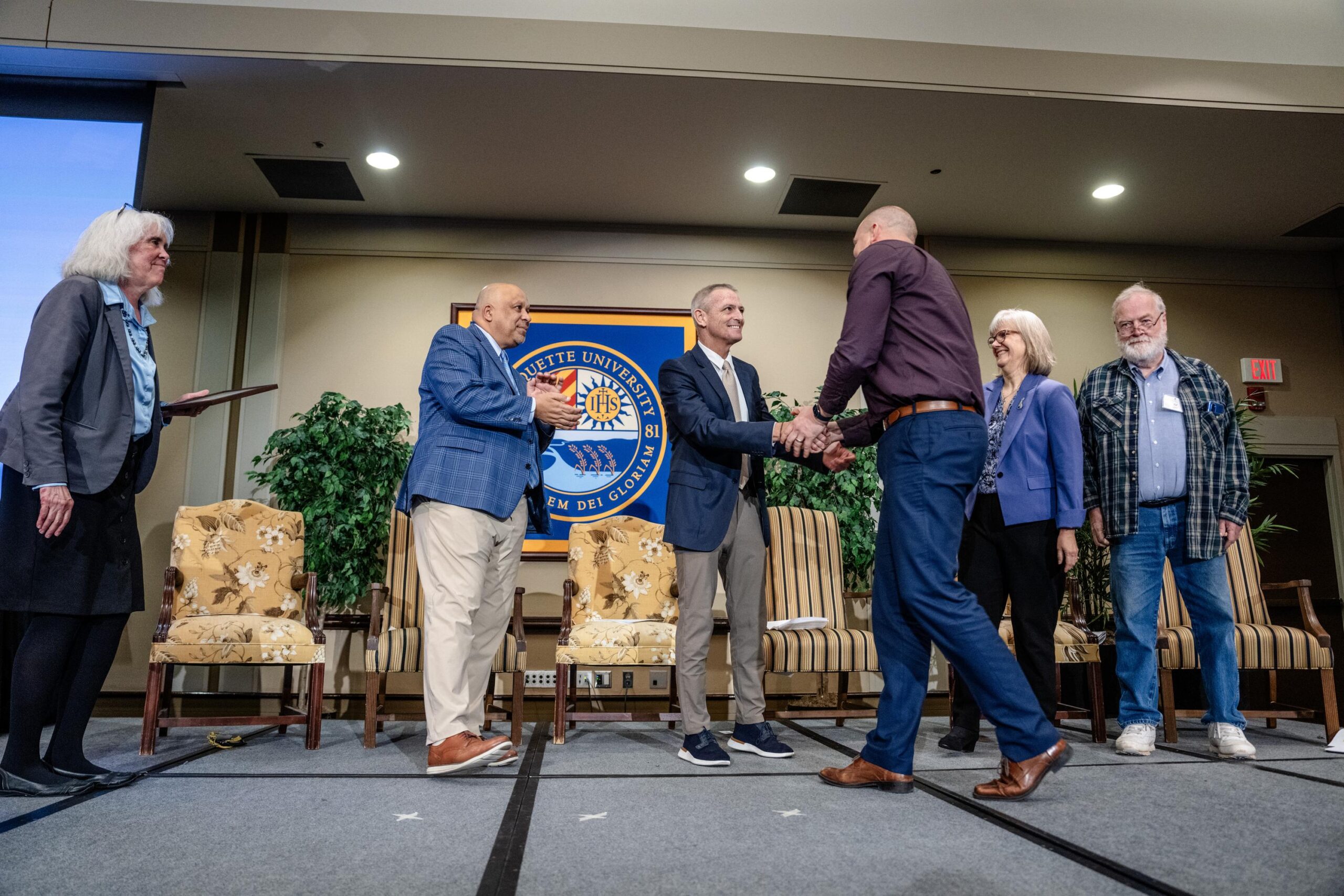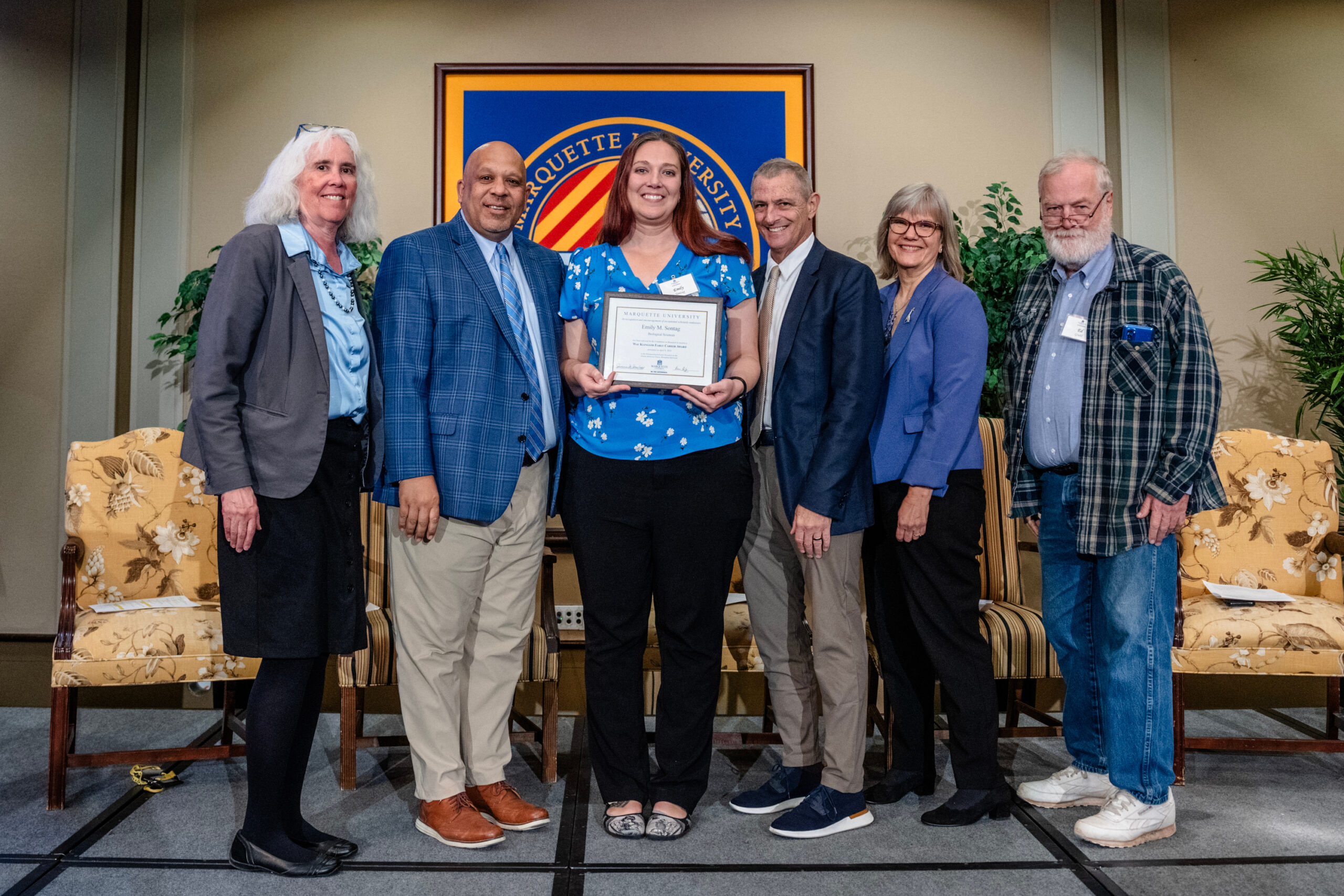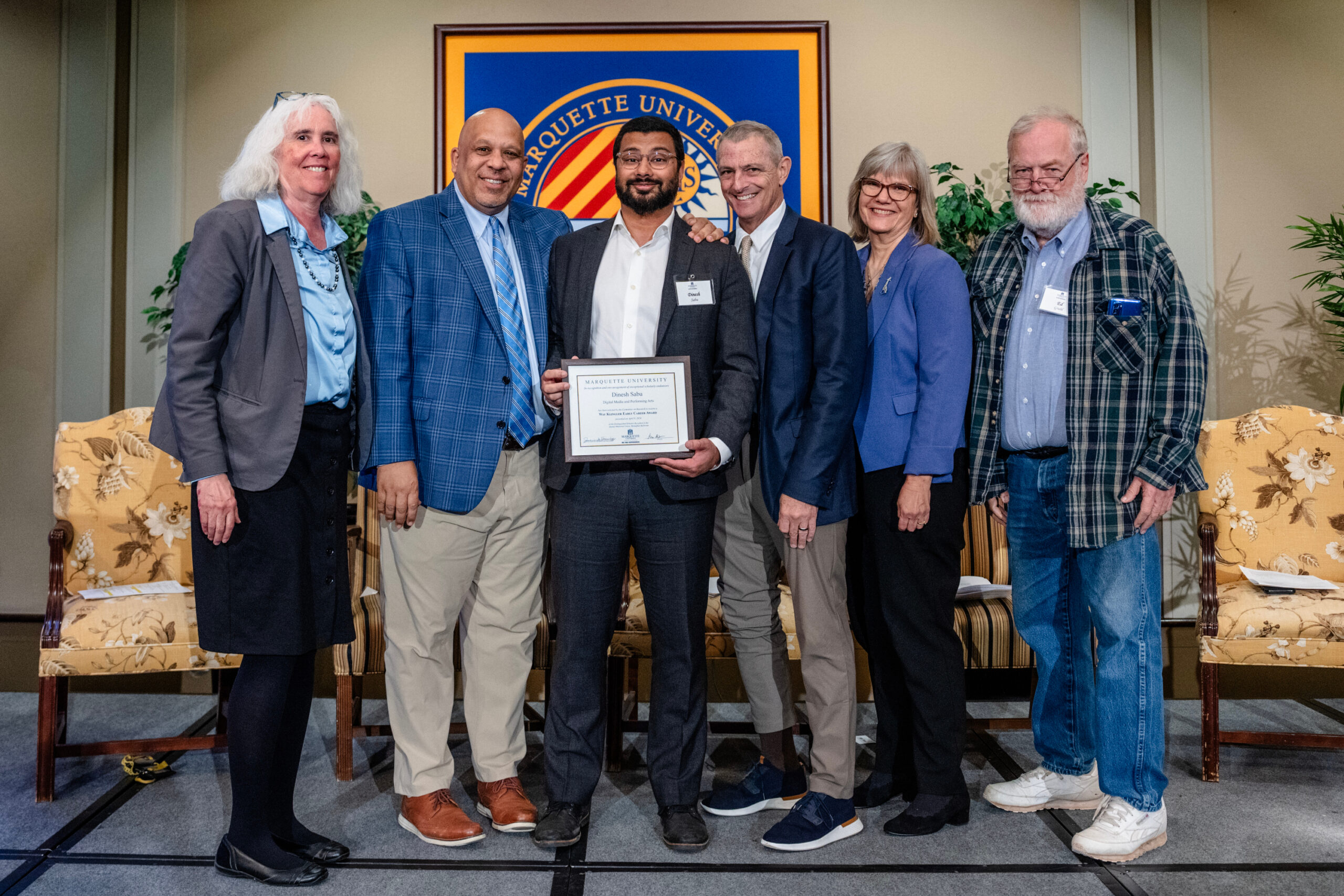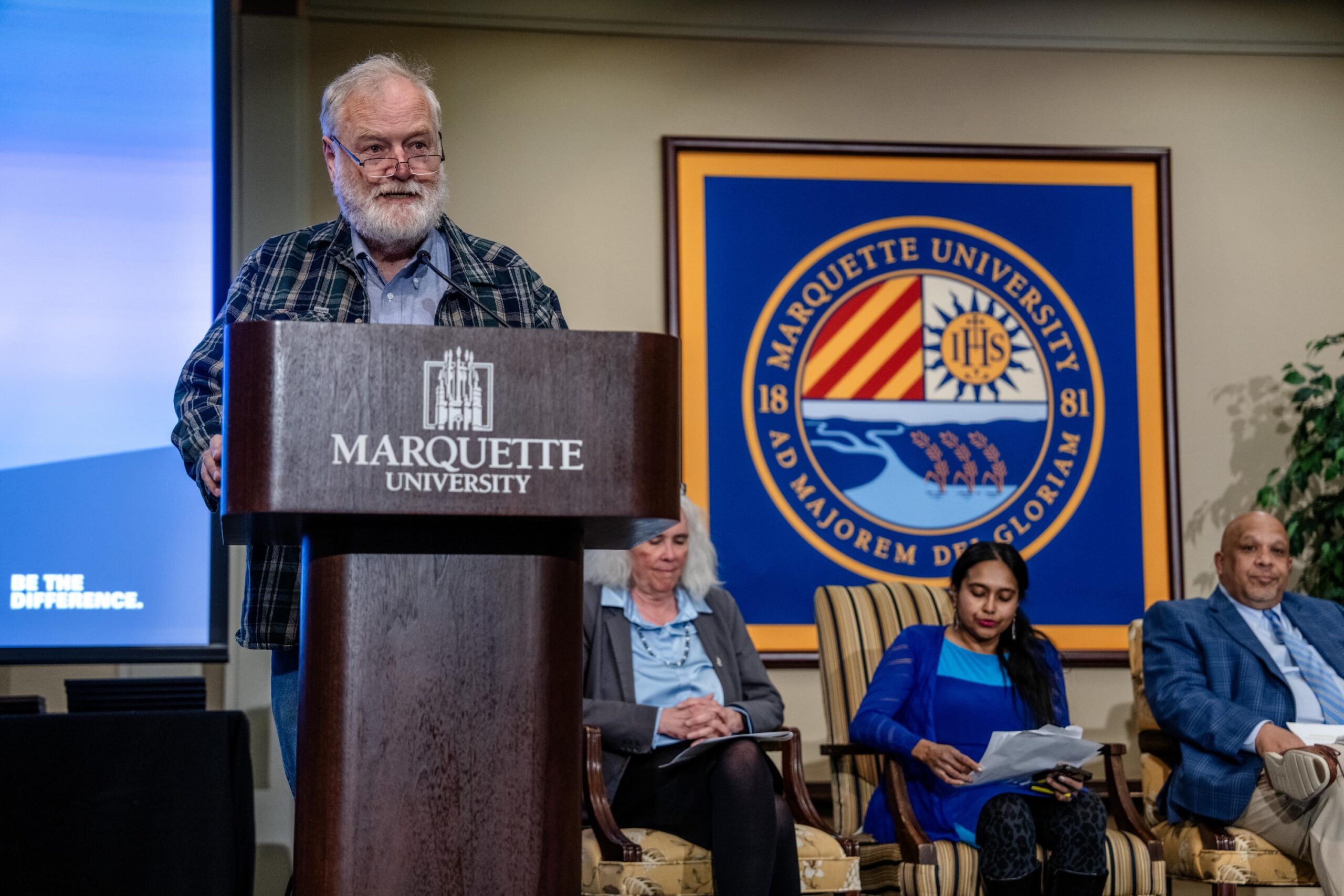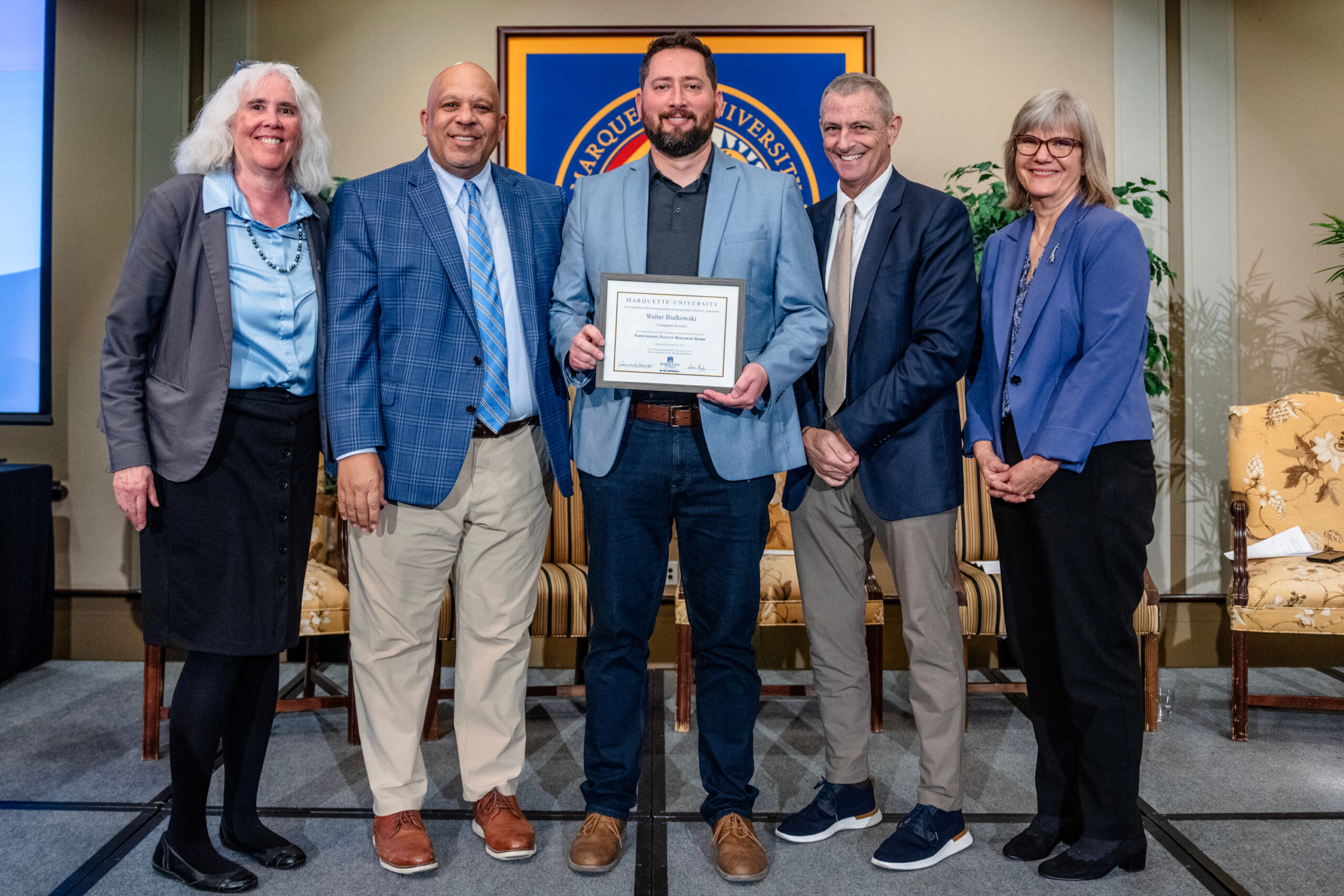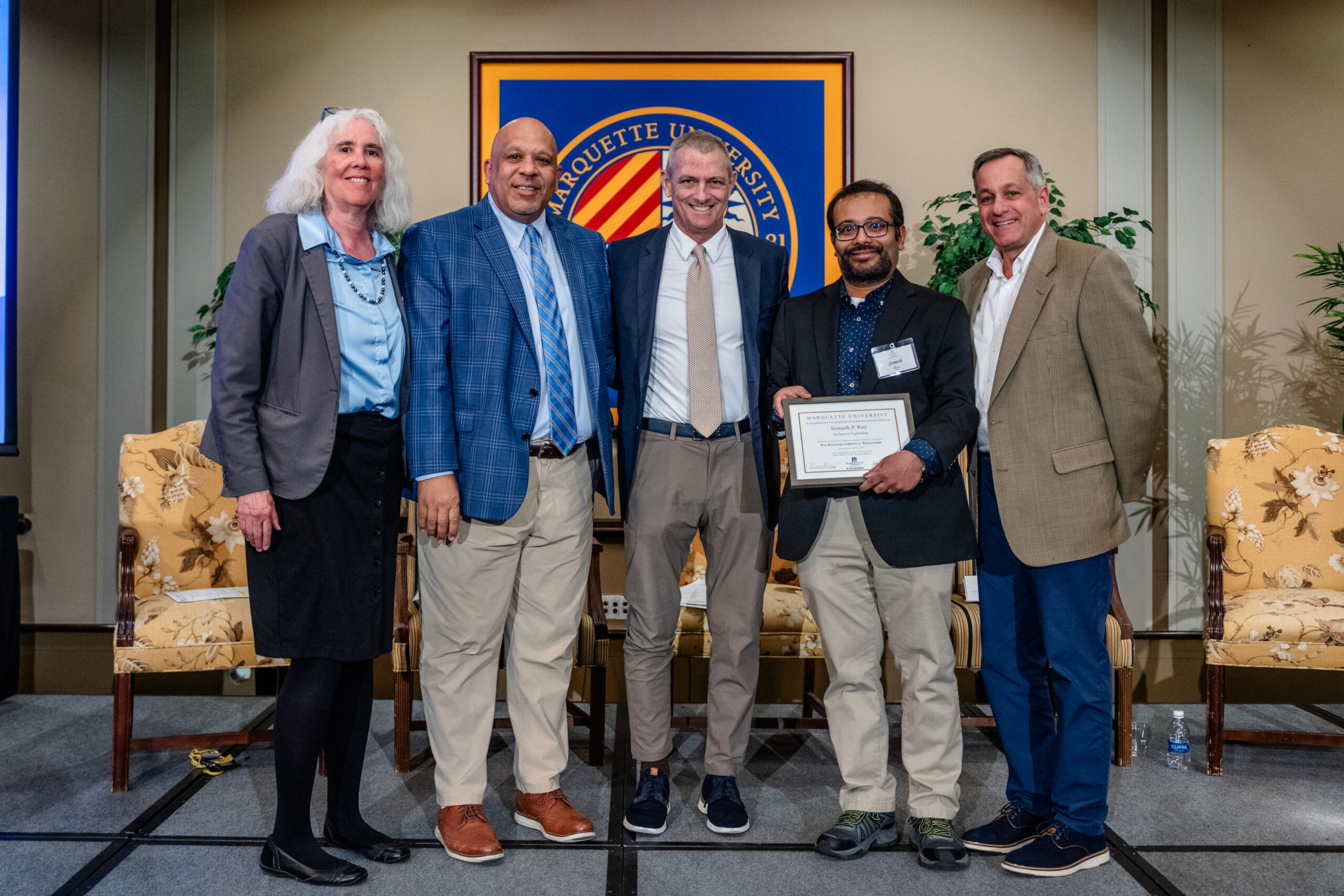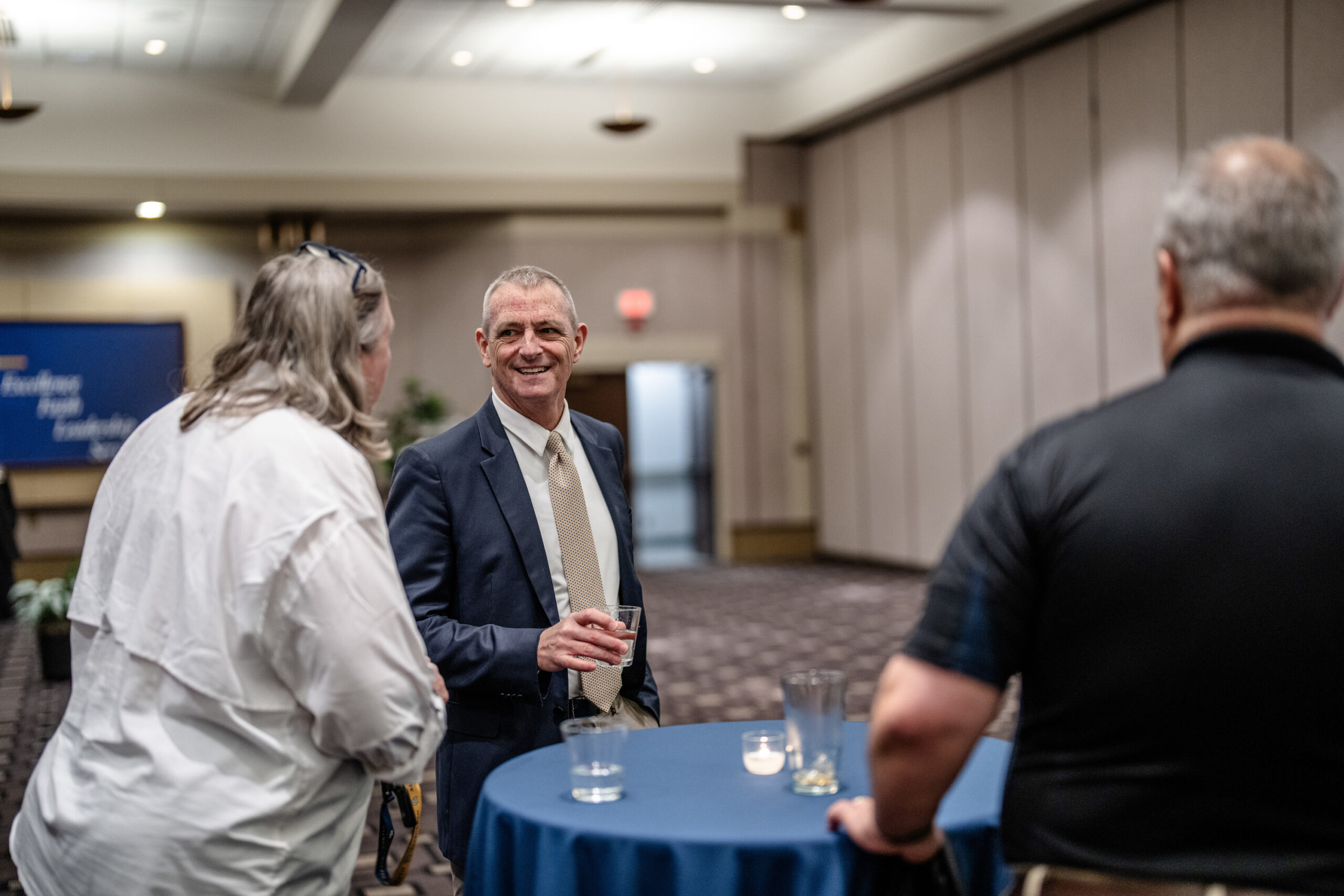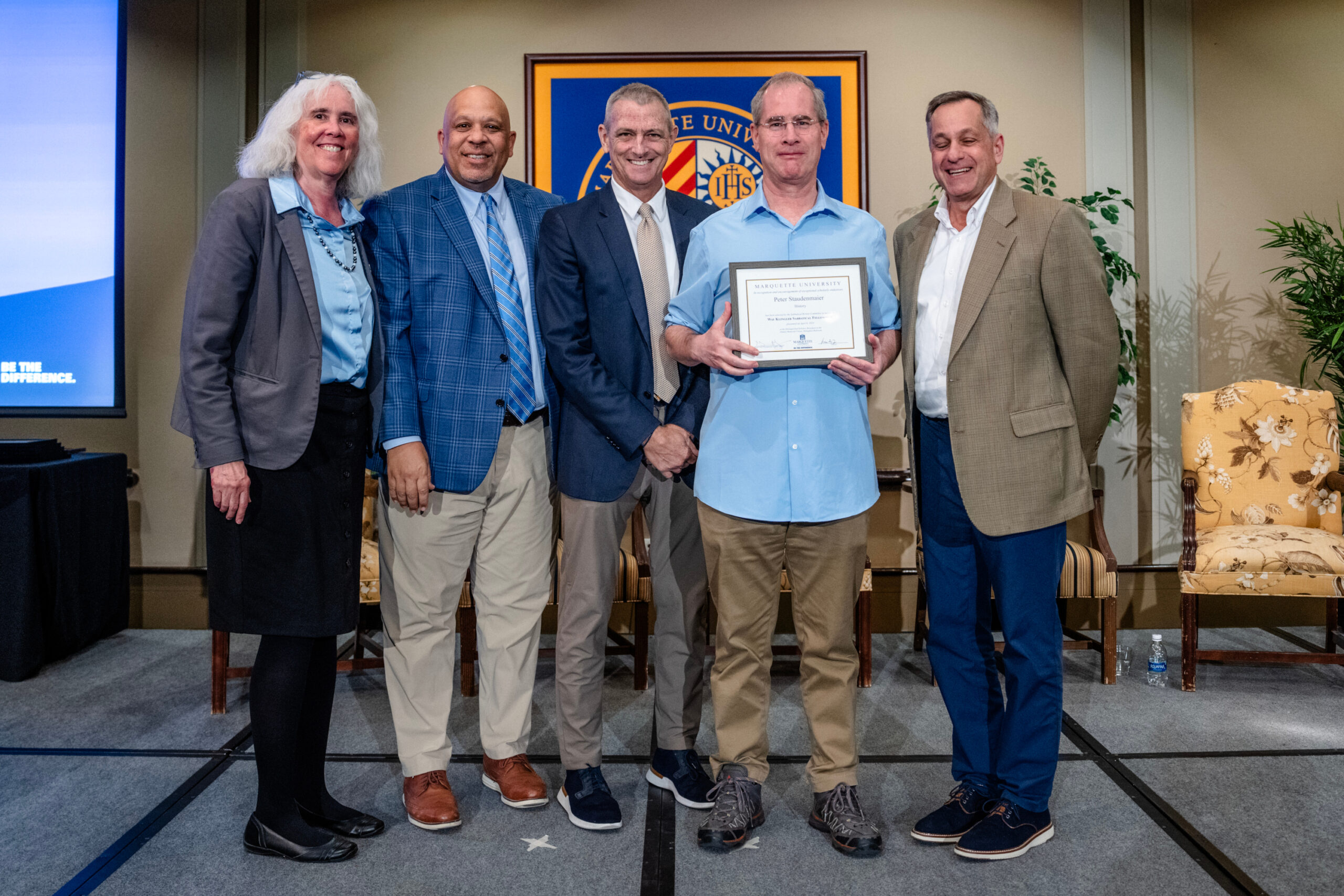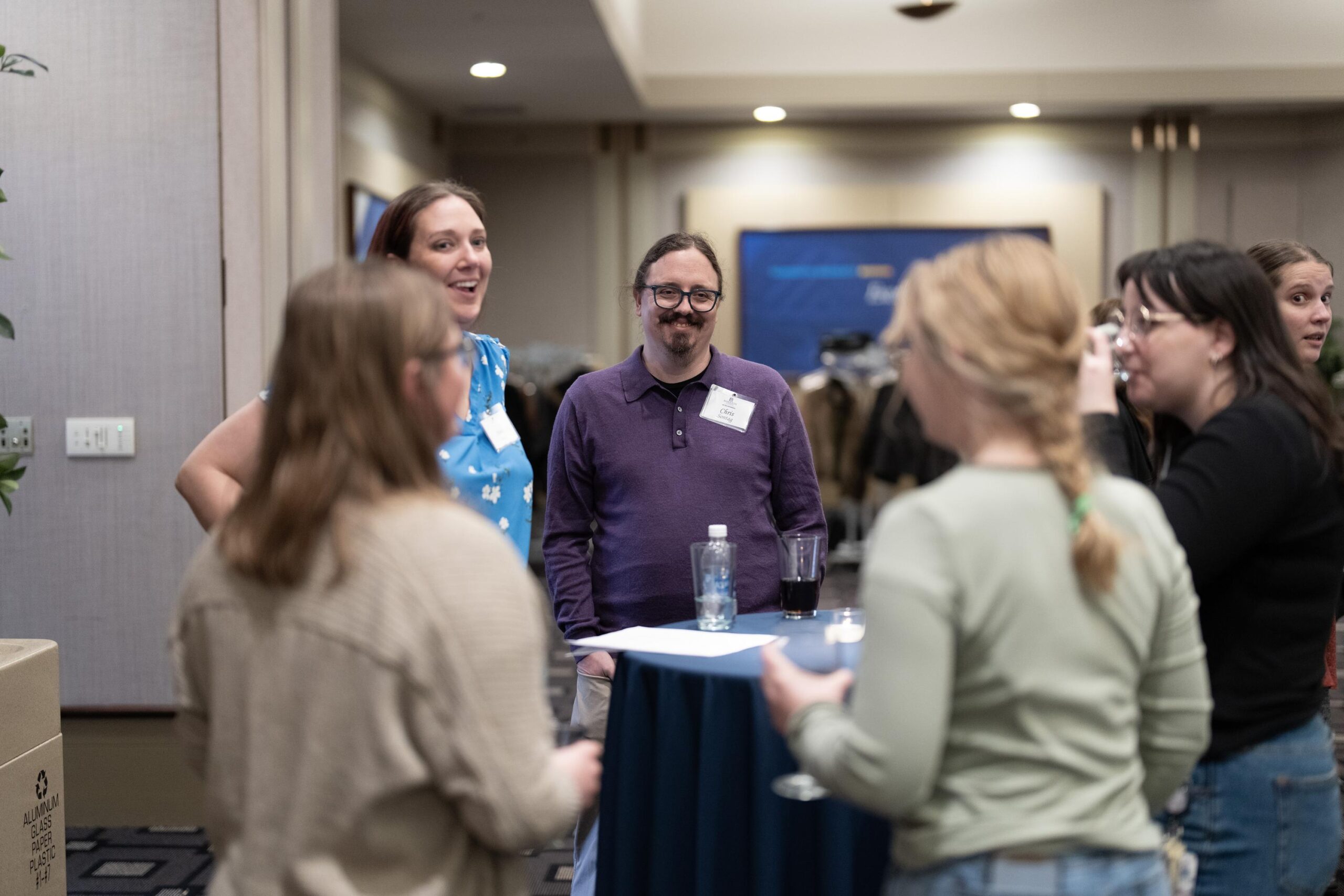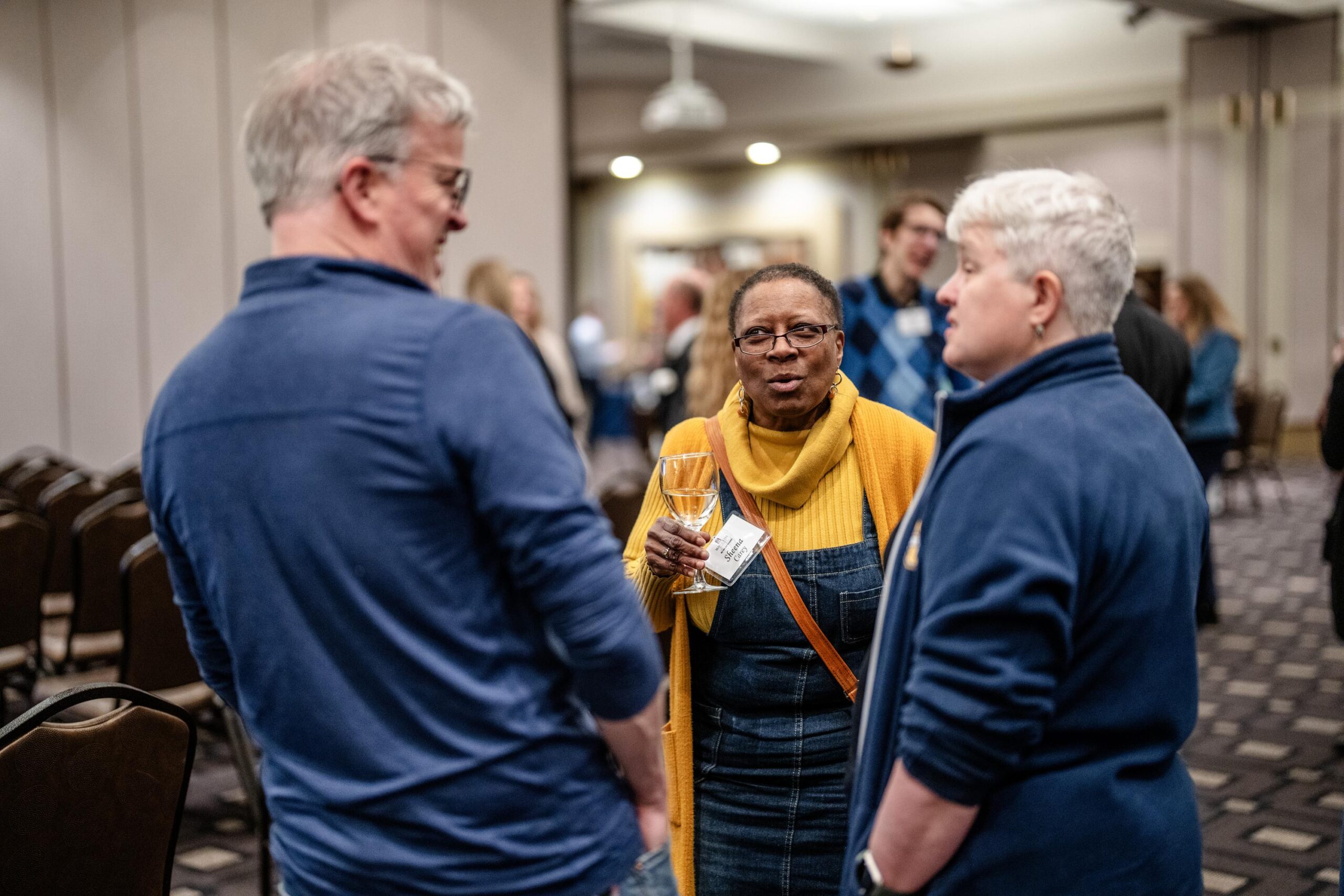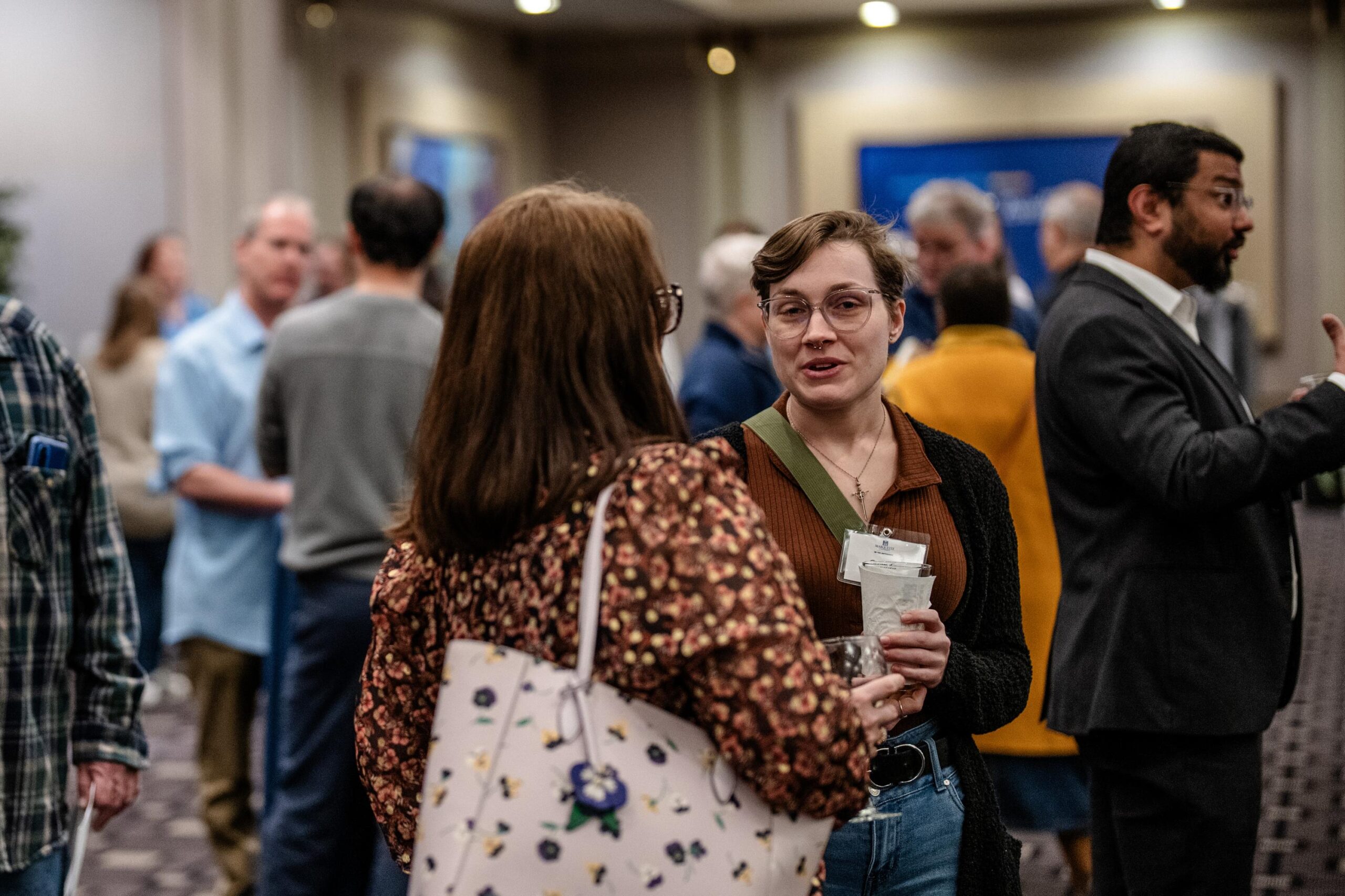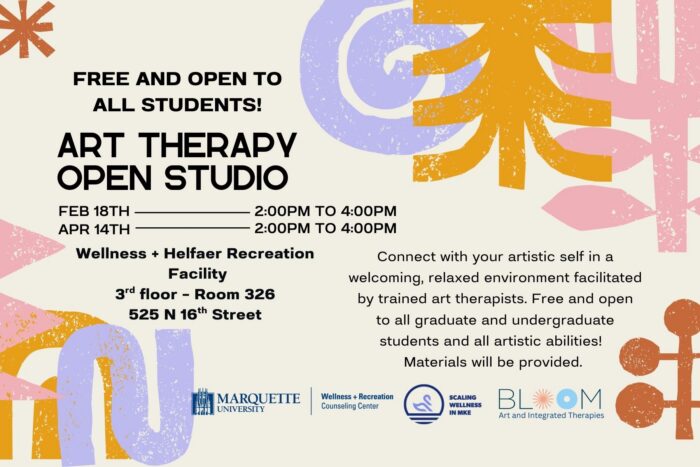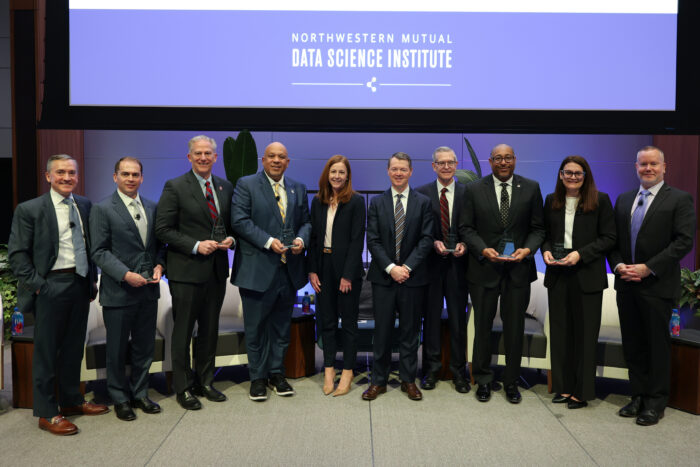Thirteen faculty members were honored on Tuesday, April 9, at the Distinguished Scholars Program, which recognizes faculty for outstanding achievement in research and scholarship.
Lawrence G. Haggerty Faculty Award for Excellence in Research
Dr. Risa Brooks, professor of political science in the Klingler College of Arts and Sciences
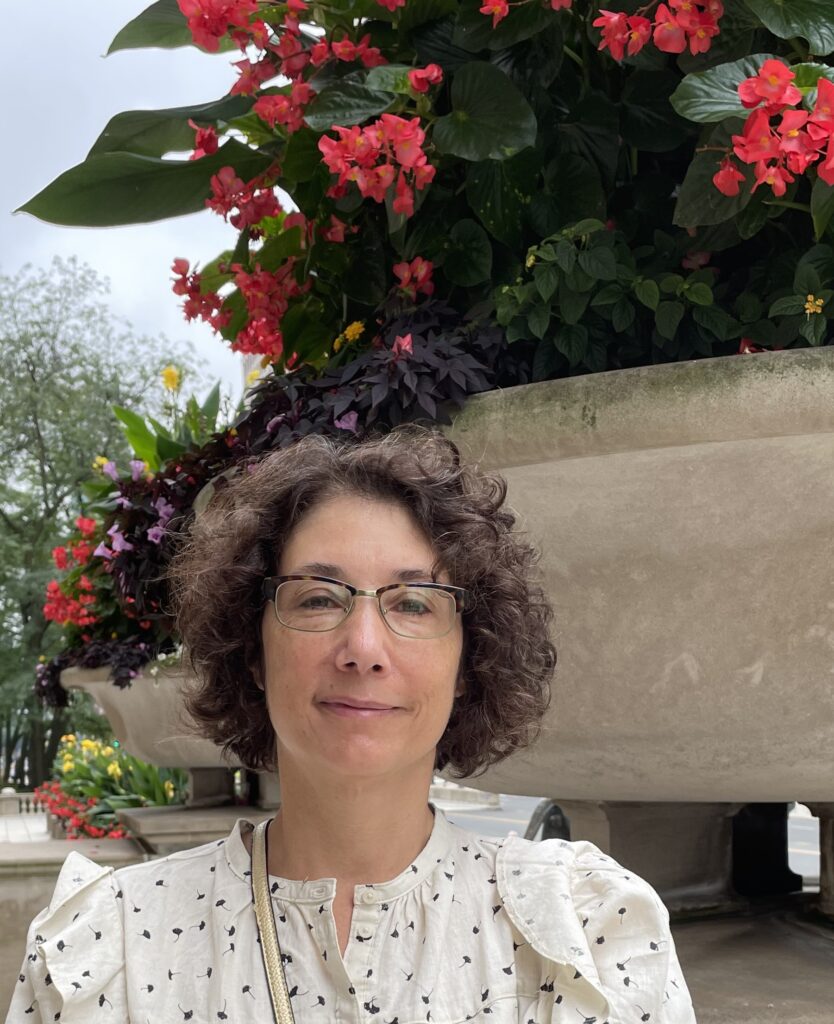
Dr. Risa Brooks is a top scholar in the United States researching civil-military relations, which is the study of relations among society, political leaders and the military. She is widely recognized globally as a leader in her field for her expertise on the United States, as well as her work on civil-military relations in countries around the world. Brooks also regularly speaks to the public, policy communities and practitioners in the military.
Brooks has been asked to write review pieces for prestigious outlets — including the preeminent political science journal, Annual Review of Political Science — and she has been invited to give talks at the most selective institutions in the United States and beyond. She has served in editorial positions on two of the most influential journals in her field — International Security and Security Studies — as well as on the editorial board of other journals in this area. Brooks is additionally a senior fellow at West Point’s Modern War Institute and a Fellow in the Future Security program at New America.
One of Brooks’ priorities has been to translate insights generated from her research into accessible commentary for a wide variety of public audiences. Her articles have appeared in The Washington Post, The New York Times and the top foreign policy publication in the country, Foreign Affairs. Students describe her as a teacher-scholar who has inspired curiosity about the broader world and a commitment to make it a better one.
She is thrilled to have received the Haggerty Faculty Award for Research Excellence, especially because “it validates the importance of doing research that has real world implications and shows our students the importance of doing so.”
Way Klingler Fellowship
Dr. Sheikh Iqbal Ahamed, professor of computer science in the Klingler College of Arts and Sciences
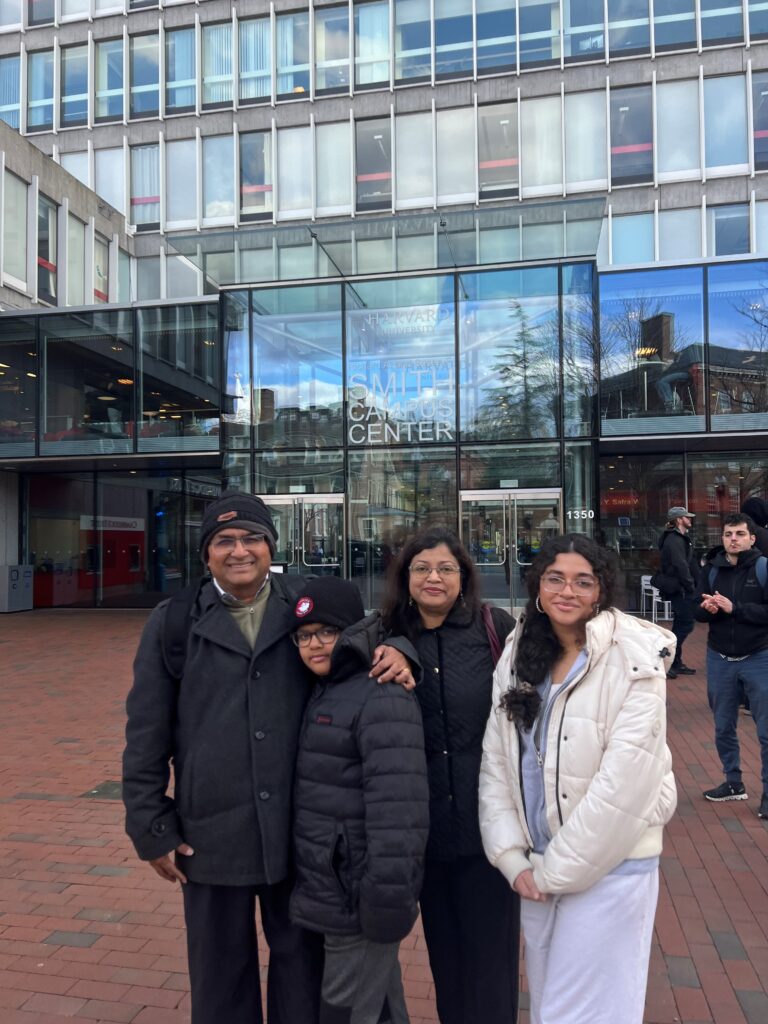
Dr. Iqbal Ahamed’s latest project works to find a more cost effective solution for producing more detailed diagnostic images of the human eye using color fundus photography that is already readily available in optometrists’ offices. Computational modeling could help transform an existing diagnostic tool into a more powerful medical device at a fraction of the cost of more advanced equipment.
This project is the latest in Ahamed’s work at the intersection of computer science and health care. His previous projects have benefitted people around the world, including breast cancer patients in rural Bangladesh and those in substance abuse clinics on Native American reservations. The Way Klingler Fellowship will help him push the boundaries of quantum sensing for biomedical applications forward to address another complex scenario.
Beyond eye disease, the possible uses of the technology are many, and this fellowship will provide a platform to explore those horizons, contributing toward a more efficient and individual health care delivery system. Through educational outreach, the fellowship will also cultivate recognition and backing for this innovative approach among health professionals, policymakers and the public, ensuring its broad impact.
“I am very thrilled and honored to receive this prestigious award,” Ahamed said. “I am also very grateful to the college and department for their support and recognition. I am also thankful to the Office of Research and Sponsored Programs for helping me submit so many grants over 20 years. I consider this more of a team award recognizing the efforts of my graduate students who conduct the main bulk of the research work.”
Dr. Louise Cainkar, professor of social and cultural sciences in the Klingler College of Arts and Sciences
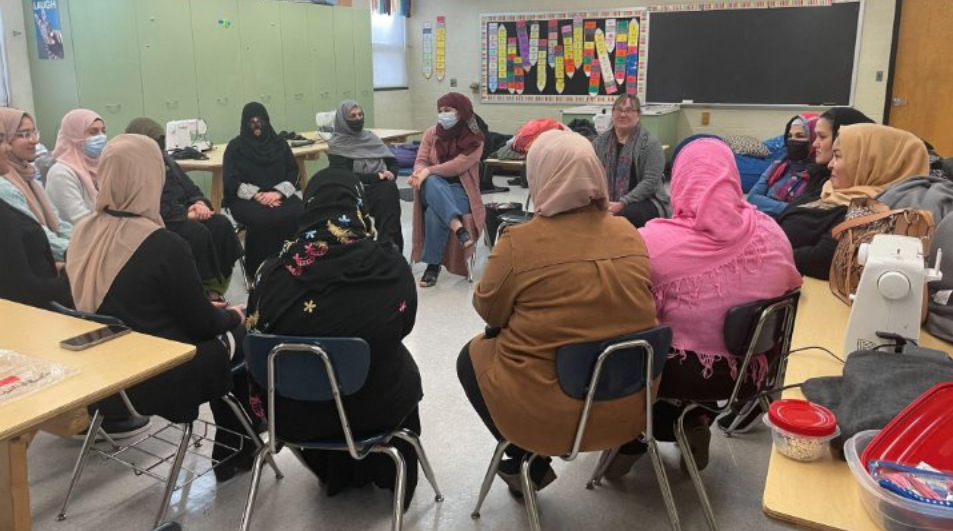
Dr. Louise Cainkar’s current research involves both evaluating a program for Afghan refugee women in Milwaukee run by the Milwaukee Muslim Women’s Coalition for which she generated the funding, and research interviews with agency directors and funders newly working in refugee resettlement with Afghans in Wisconsin and Illinois. She aims to produce a policy report that includes best practices and recommendations for refugee resettlement as well as scholarly publications, two of which she is already committed to.
When Afghan refugees arrived in the United States in 2021, the traditional refugee resettlement infrastructure — in place since the 1980s — was broken, having been heavily dismantled by an administration that disfavored refugees. A new model of resettlement was launched by the Biden Administration that depended heavily on volunteers and private sector funding to community organizations. While traditional resettlement agencies remained involved in case management, they lacked the capacity to do it all.
Many sociological research questions flow from these system changes, new engagements and social relationships: questions about the gains and losses of the new model of resettlement versus the traditional model; questions about the unprecedented role of both U.S. Muslim-led and women-led agencies in refugee resettlement; and questions about assumptions of solidarity and shared cultures between Arabs and Afghans. Cainkar plans to examine these lenses through a variety of methods.
“The Way Klingler Award means a lot to me because it is conferred by my colleagues, which I find a highly meaningful source of recognition,” Cainkar said. “I also love that it values my work with Muslim communities. I have weathered my share of criticism and even hostility for this work from persons who for one reason or another prefer to marginalize or demonize these communities. Finally, it will allow me to continue with this important project by allowing me to put dedicated time into it.”
Dr. Melissa Ganz, associate professor of English in the Klingler College of Arts and Sciences
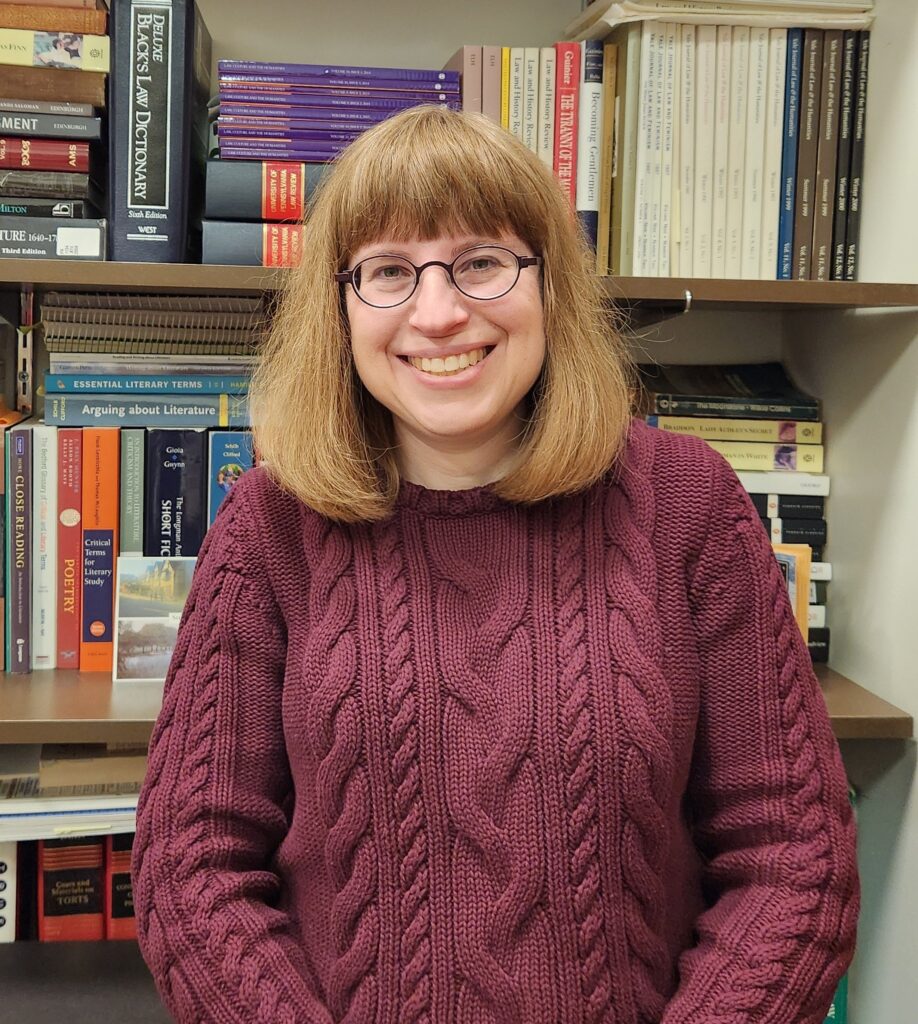
Dr. Melissa Ganz’s research is propelled by her belief that literature offers not only aesthetically powerful insights into the human condition but also uniquely valuable contributions to pressing legal and ethical concerns. By recovering dialogues among British novelists, jurists, philosophers and social observers in the 18th and 19th centuries, her research seeks to offer new interpretations of literary texts while shedding light on questions of law and justice that remain of concern to this day.
Ganz is currently working on two book projects and two editorial projects, as well as completing a series of essays on law and ethics in Romantic-era fiction. The first book, which she will develop with the support of the fellowship, is titled “Criminal Responsibility and the British Novel, 1837-1907.” The study considers how novelists such as Charles Dickens, Mary Elizabeth Braddon, Wilkie Collins, Robert Louis Stevenson and Joseph Conrad participated in debates about the nature and limits of criminal responsibility in a period marked by new theories of criminal behavior and growing anxieties about human agency and free will.
During the fellowship, Ganz plans to draft the introduction and the chapters on Dickens and Braddon. As part of this work, she will undertake further research in both primary and secondary sources, including 19th-century periodicals, treatises and legal cases, as well as literary criticism and legal and cultural history. She will also read fiction by Dickens, Braddon and other novelists and will use this research to draft and revise the first two chapters.
“I am extremely grateful for this opportunity,” Ganz said. “My study aims to explore new connections between imaginative writing and criminal justice in the Victorian period. It considers how novelists responded to and helped shape discussions about the biological, psychological and environmental factors that contribute to criminality, as well as the implications of these factors for legal responsibility. The Way Klingler Fellowship will enable me significantly to advance this project.”
Dr. Marieke Gilmartin, associate professor and associate chair for research of biomedical sciences in the College of Health Sciences
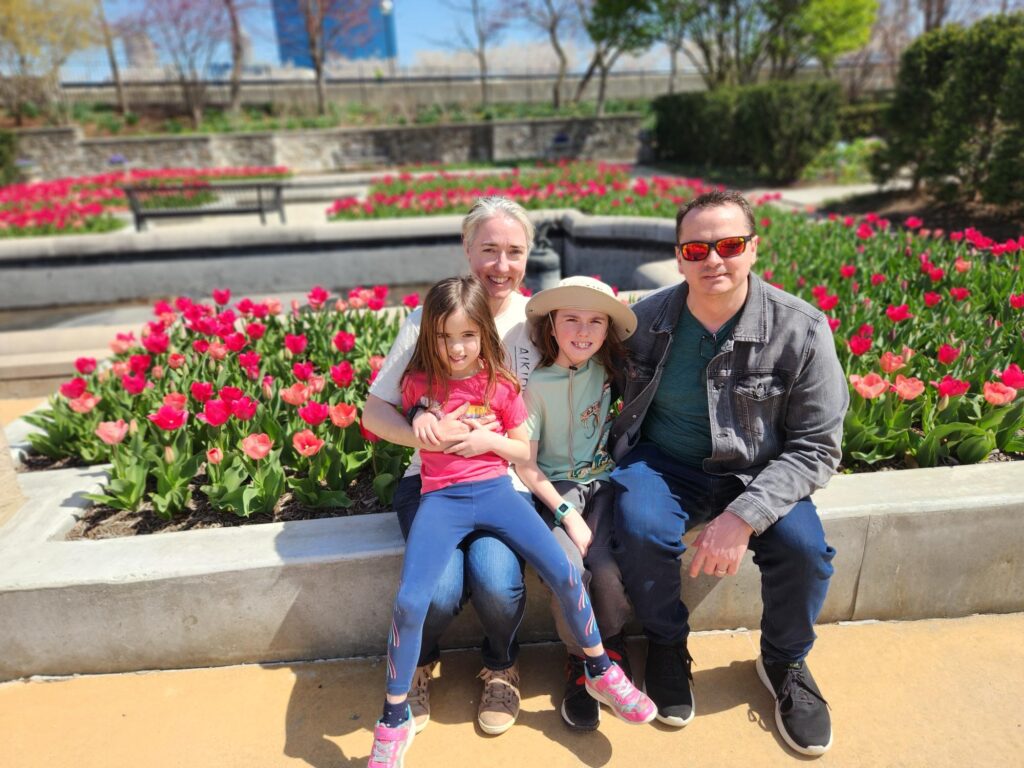
Dr. Marieke Gilmartin’s research strives to understand the brain mechanisms of memory formation — how distinct aspects of a brief experience are encoded by different brain areas into a cohesive long-lasting memory. Her work has primarily focused on fear memories, with the ambition to uncover the neural factors that lead some individuals to develop the debilitating, maladaptive fear symptoms of post-traumatic stress disorder after a traumatic experience.
Gilmartin’s team measures and manipulates brain activity in rats in real-time using in vivo tools. In a series of papers, the team has identified how temporal and contextual information about a fearful experience is relayed between memory systems and defensive brain systems during fear memory.
Gilmartin’s team has additionally examined the cellular mechanisms of memory within the prefrontal cortex. This area of the brain is important for working memory and for the anticipation of threat. Their work has revealed that while males and females show comparable fear memory, the cortical brain mechanisms supporting fear learning are distinct. They have further linked these distinctions to sex hormones and now seek to leverage these hormone effects to uncover novel mechanisms of vulnerability or resilience relevant to PTSD. This Way Klingler project will apply this strategy to Alzheimer’s disease.
“I am honored to receive a Way Klingler Fellowship, which will allow me to pursue a new direction in my research on the dynamic ways that memories are created in the brain,” Gilmartin said. “Our research to date has revealed the importance of sex hormones on the brain circuits of memory and this award will allow us to determine how certain hormones affect the progression of Alzheimer’s-related pathology and cognitive decline. This work is a step towards a better understanding of aging and Alzheimer’s risk as well as towards new treatment options for this debilitating disease.
“I am also thrilled to help carry out Helen Way Gruhl Klinger’s mission to provide our students with transformative experiences. This award will allow me to work closely with students to apply cutting-edge research tools to a difficult problem in neuroscience, helping to train the next generation of researchers.”
Dr. Owen Goldin, professor of philosophy in the Klingler College of Arts and Sciences
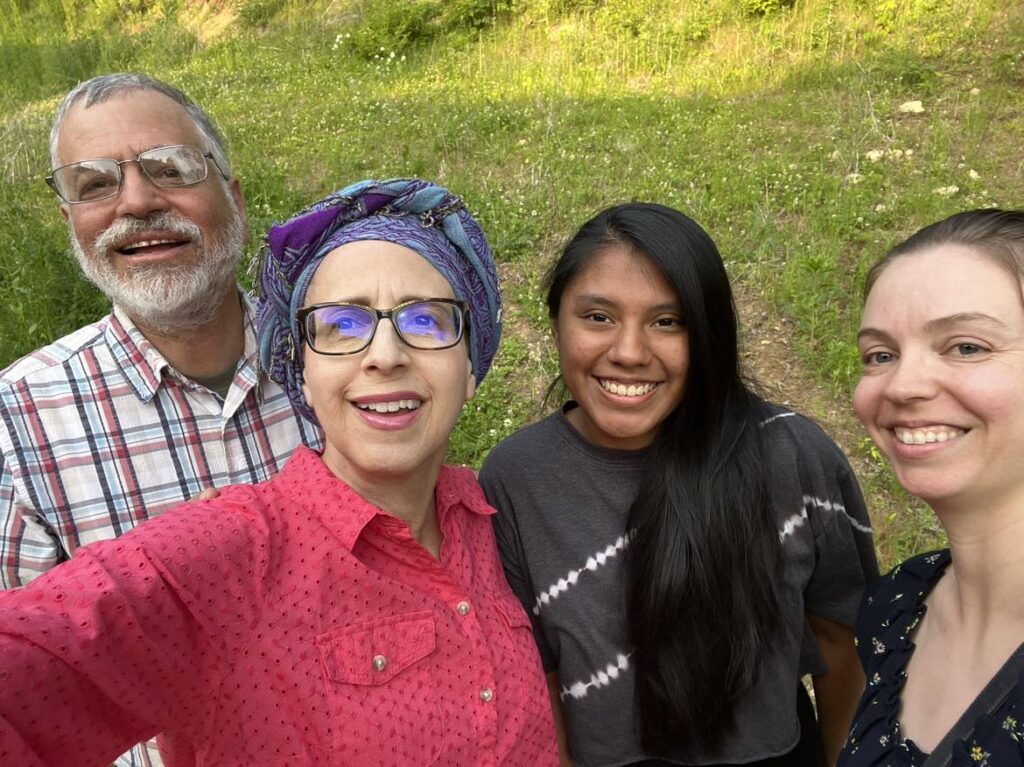
Dr. Owen Goldin’s work focuses on Aristotle’s Posterior Analytics, which aimed to work through the logic, epistemology and metaphysics that undergird any intellectual discipline. He works to clarify the details of Aristotle’s argument; this has led to much work on the ancient commentaries on Aristotle.
Most recently, Goldin has been studying what anthropologists have said about nonliterate cultures’ way of making sense of the world through “symbolic classification.” He is developing an account of how ancient Greek accounts of explanation emerged on this basis, ultimately leading up to Aristotle. Goldin explored this topic in three papers and looks to continue developing his account in book form with “The Emergence of Ancient Greek Metatheory.” This structure will allow him to go into greater detail and fill in some gaps in the story not explored in his previous publications.
The Way Klingler Fellowship will allow for:
- Planning and running a conference on the theme of Goldin’s proposed research
- Publication of selected papers from that conference
- Travel to allow for conference participation and other conversation with scholars doing related research
- Buyouts to allow for a reduced teaching load over the course of the next two years
“I am deeply honored and profoundly grateful to be the recipient of the Way Klingler Fellowship,” Goldin said. “It’s fitting that the culmination of decades contributing to Marquette’s mission of instilling wisdom and knowledge will be the writing of a book that strives to dig deep into the human mind and our shared history, to shed light on what wisdom and knowledge are.”
Way Klingler Early Career Award
Prof. Dinesh Sabu, assistant professor of digital media and performing arts in the Diederich College of Communication
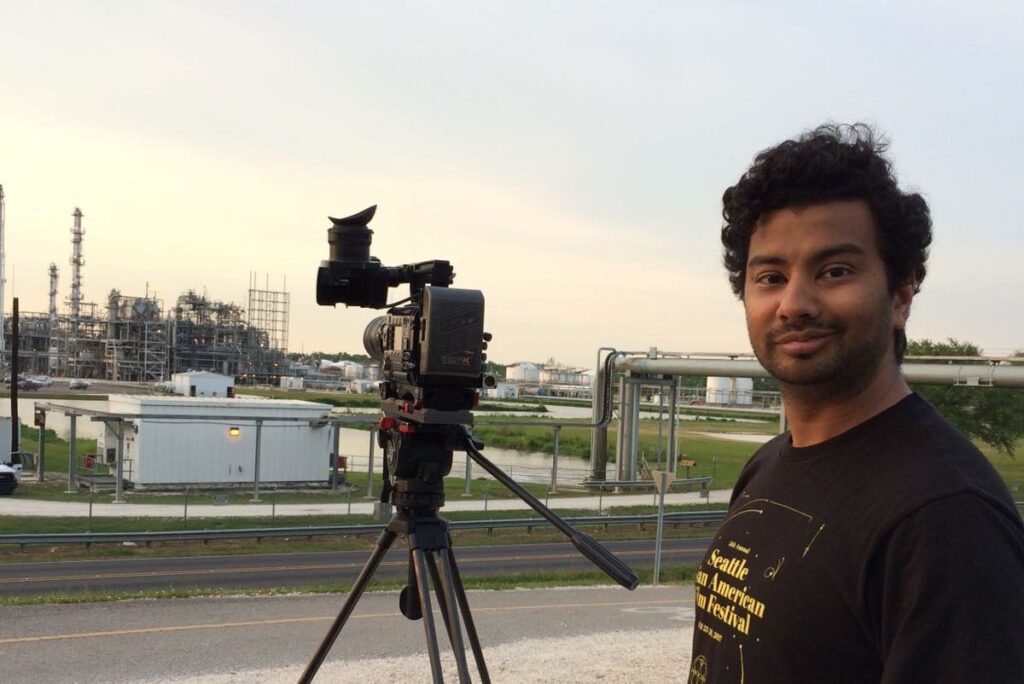
Dinesh Sabu makes socially engaged documentaries in a way that seeks to advance the form of documentary film. His work explores the unique potential of the medium to engender a new, cinematic way of understanding and transmitting the experiences of people and communities.
Sabu’s work often engages with his own intersectionality: notably the South Asian diasporic experience and surviving trauma. Sabu’s first feature film, “Unbroken Glass,” is a personal documentary that grapples with his family’s history of immigration and mental illness. In his second feature, “How (not) to Build a School in Haiti,” he worked to deconstruct traditional narratives about nongovernmental organizations and global poverty.
Sabu is currently developing two feature-length projects grown out of philosopher Gilles Deleuze’s work on cinema exploring ways the medium can represent time. This project expands on his recent experimental projects, “M87” and “Dog’s Dream,” which allowed him to explore film language freed from traditional conventions.
“As someone whose research is creative practice, it is incredibly meaningful to get the support of a Way Klingler Early Career Award,” Sabu said. “Not only is it an honor to know that my work is of a caliber to earn this award, but it also tells me that creative practice has a home in the community of scholarship and research at Marquette.”
Dr. Emily Sontag, assistant professor of biological sciences in the Klingler College of Arts and Sciences
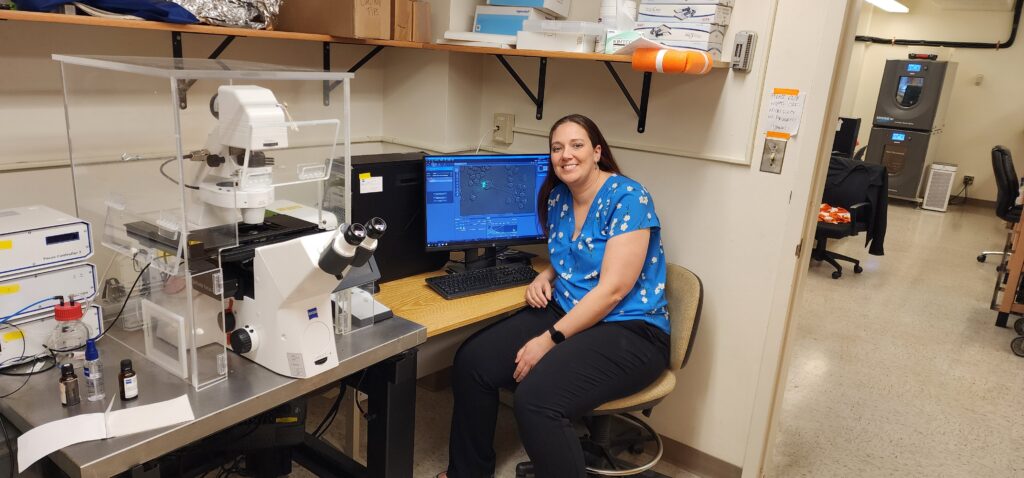
Dr. Emily Sontag’s research focuses on further understanding the role of degradation, aggregation and toxicity of disease-causing proteins in neurodegeneration — proteins that lead to diseases such as Alzheimer’s, Parkinson’s, ALS and Huntington’s disease.
Nearly 7 million people in the United States are affected by severe memory loss and impaired movement, termed “neurodegenerative diseases.” These diseases are caused by proteins misfolding into toxic conformations that disrupt essential cellular processes. Misfolded proteins are very sticky and will form large clumps of proteins called aggregates, which are a hallmark of neurodegenerative disease. Despite decades of study, we still don’t know how these aggregates lead to disease.
Sontag’s work follows three main avenues of investigation to further understand this process: protein misfolding and clearance in yeast, protein degradation during aging, and applying these findings to mammalian cell models of disease.
“I am truly honored to receive the Way Klingler Early Career Award,” Sontag said. “The faculty at Marquette are inspiring and I am grateful to be selected. This award comes at a critical time when I need to focus on writing papers and grants, so having the resources to do so is invaluable to my research.”
Dr. Christopher Sundberg, assistant professor of exercise science in the College of Health Sciences
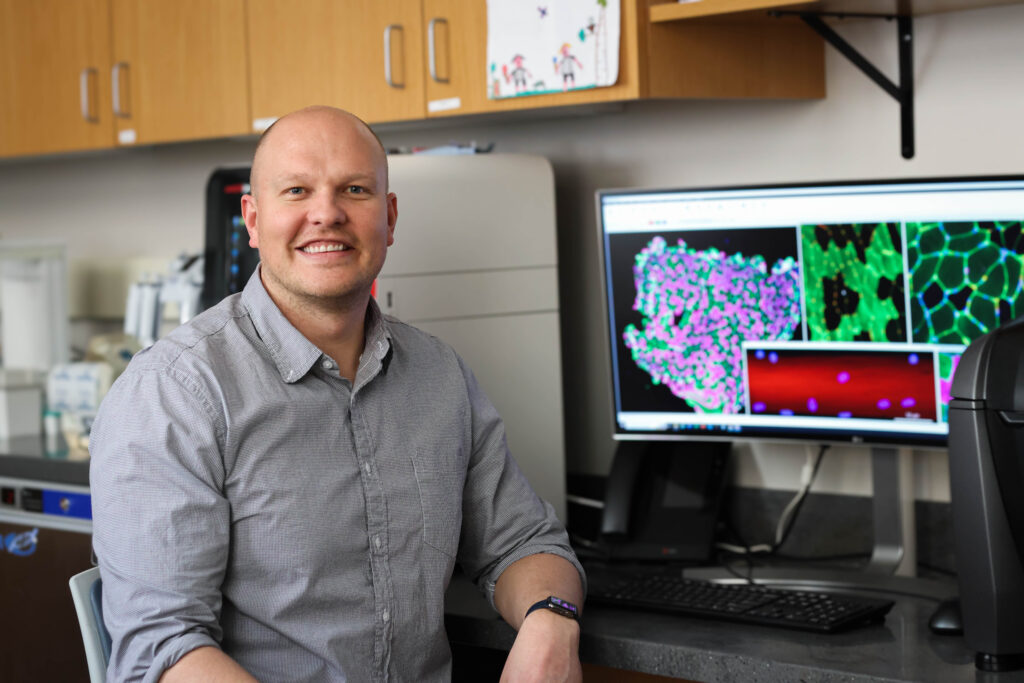
Dr. Christopher Sundberg’s lab works to identify the causes of skeletal muscle fatigue and the physiological processes that limit human neuromuscular function in health, aging and disease. Without this understanding, endeavors such as exercise training programs to enhance neuromuscular function and therapeutic interventions to mitigate the detrimental effects of muscle weakness and fatigue in clinical populations are formulated without empirical data to back them up.
Sundberg’s lab adopts an approach employing multiple cutting-edge techniques to study muscle weakness and fatigue that span from how well the brain can activate the muscle down to the function of the individual cells and molecules. He aims to develop a detailed mechanistic understanding of these phenomena with the goal of creating novel interventions to improve muscle power output, muscle size (hypertrophy), and fatigability in healthy and clinical populations.
The primary focus of his lab currently is to answer three questions: 1) why do older adults fatigue more rapidly than young during dynamic exercise, 2) why as we age do we lose strength earlier in life and at a more rapid rate than we lose muscle mass, and 3) what are the most effective interventions to preserve or increase power output and improve fatigability in older adults?
“My young group of trainees are at a pivotal stage of development requiring a large commitment of time and attention to properly train them to execute the technically challenging approaches used in my lab,” Sundberg said. “This generous award from the Helen Way Klingler Foundation will help foster their development by allowing me to devote an entire semester to research with them. I am humbled and honored to be one of the recipients of the award and look forward to a fun and productive semester of research.”
Participating Faculty Research Award
Dr. Walter Bialkowski, visiting assistant professor of computer science in the Klingler College of Arts and Sciences
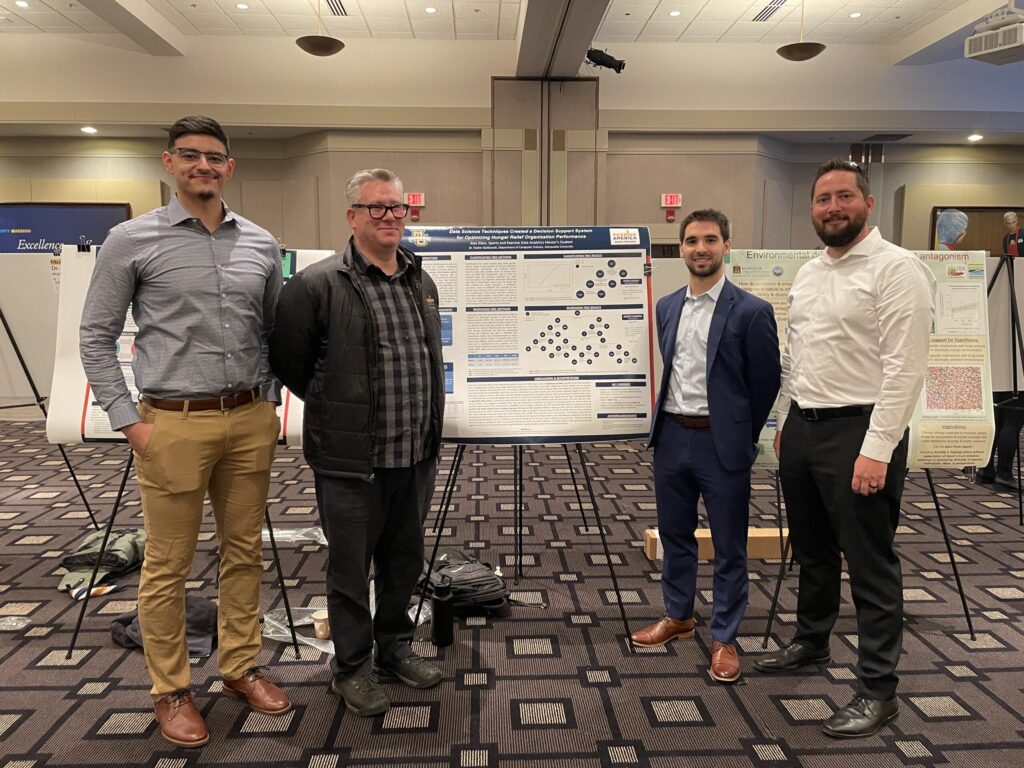
Dr. Walter Bialkowski directs a lab that was created thanks to support from Marquette’s President’s Challenge in 2020. The lab prioritizes applied student learning, authentic community partnerships and solving real-world problems. Bialkowski’s students work on projects that drive positive change by applying their training in data science with guidance from subject matter experts.
Students in the lab created an interactive application that allows Feeding America Eastern Wisconsin to visualize key infrastructural capabilities of all partner agencies, i.e., “food pantries,” simultaneously. Students have also built a machine learning and probabilistic risk assessment analytics pipeline which provides each of the 427 food pantries in eastern Wisconsin with their individual probability of experiencing an emergency food shortage in the coming week. Students have also quantified the effect of inflation on food insecurity and demonstrated that the use of technology can remove the stigma associated with accessing charitable food. The lab is now developing a comprehensive data store that seeks to predict regional food shortages by food type.
“I am honored to have received this award,” Bialkowski said. “So many students and collaborators deserve credit for the great things we are doing to end hunger. Thank you for the privilege to mentor these projects and thank you to all our funding agencies.”
Dr. Amanda Heideman, teaching assistant professor of political science in the Klingler College of Arts and Sciences

Dr. Amanda Heideman’s research agenda addresses critical — and often understudied — questions related to local politics, misinformation in the public and the effectiveness of program interventions. In doing so, her work makes significant contributions to our scientific understanding of these issues and, at times, has an immediate impact on the community.
Through her scholarship, Heideman works to further understand the dynamics of local politics and political behavior; how political attitudes and behavior are impacted by misinformation and the media; and the issues at the intersection of the criminal justice system with substance abuse and behavioral health. All three agendas have broad societal impacts and reflect Marquette’s commitment to community-based research.
Through her various projects, Heideman explored correlates of local policy attitudes using survey data from 40 cities across the United States, assessed access to information and information asymmetries at the local level, detailed the role of corrective information in facilitating opinion change, and managed the evaluation of the pre-charge diversion program for possession of narcotics in nearby Waukesha County.
“The teacher-scholar model is a signature feature of Marquette’s approach to Jesuit education and is something to be proud of and protect for decades to come,” Heideman said. “As an active researcher in the field, I bring into my classroom cutting-edge insights about political behavior, representation and innovative research techniques. It’s that kind of integration of research and teaching that enables Marquette to fulfill its mission. It is an honor to receive this award and I am thrilled to have my research accomplishments recognized by the award committee.”
Way Klingler Sabbatical Fellowship
Dr. Somesh Roy, associate professor of mechanical engineering in the Opus College of Engineering
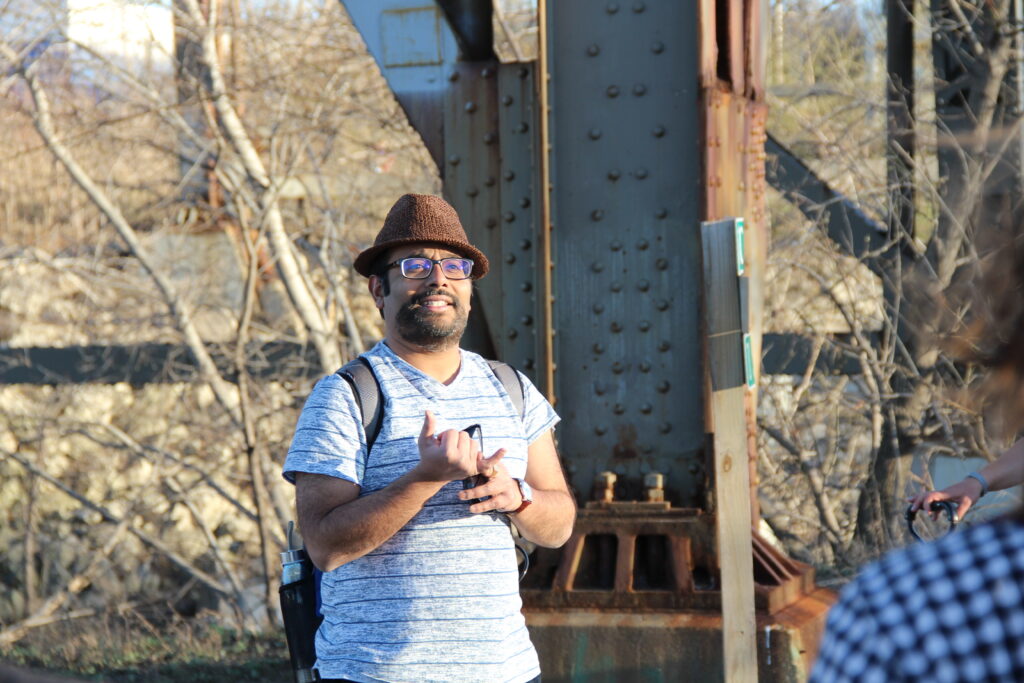
The overarching goal of Dr. Somesh Roy’s research is to help piece together the puzzle of climate change with a focus on soot — a combustion generated pollutant — and thermal radiation. He is additionally interested in public perception related to these topics. While most of the public is aware of the fact that soot is bad for the environment and health, they are unaware of the extent of soot’s presence and impact.
Roy has two major goals for his sabbatical: 1) to develop expertise on atmospheric radiation modeling, and 2) to explore the hidden connection between history, art and science of soot. The latter goal is a new direction for Roy — one which will help him develop a unique point of view in telling the scientific story of soot and atmospheric radiation.
Roy will spend the first six months of his sabbatical as a visiting scholar at Laboratoire d’Optique Atmospherique (LOA) – UMR 8518, Universite de Lille (Atmospheric Optics Lab at University of Lille), France. The Atmospheric Optics Lab is a leading, internationally recognized laboratory with expertise in atmospheric radiation, remote sensing and radiation transfer through media including soot and other aerosols. Upon his return to the United States, Roy will spend time in the archives of several museums, starting with Milwaukee Art Museum and Art Institute of Chicago.
“I am humbled and honored to have received the fellowship,” Roy said. “This award will be a great support for me to extend my research collaborations while also helping expand my exploration beyond the conventional borders of engineering research.”
Dr. Peter Staudenmaier, associate professor of history in the Klingler College of Arts and Sciences
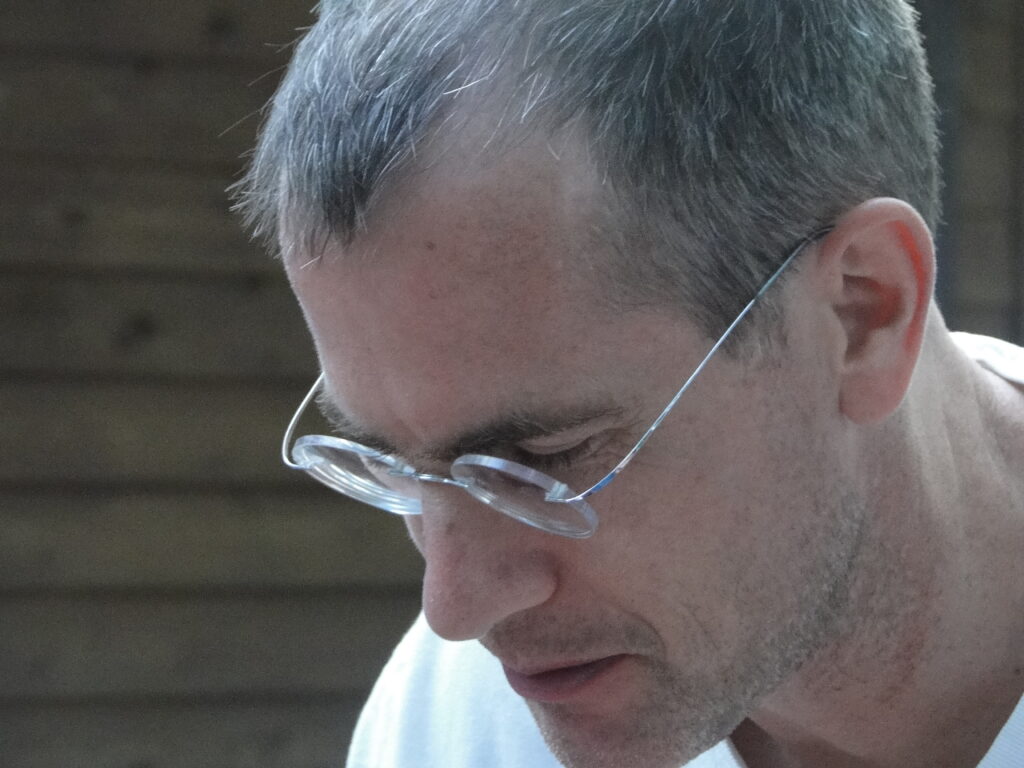
During his sabbatical, Dr. Peter Staudenmaier will focus on completing his next book centered on Italian fascist thinker Julius Evola. A central figure in far right movements for decades, Evola has become more widely known in recent years due to his influence on younger generations of the radical right. Staudenmaier will examine Evola’s activities in Fascist Italy and Nazi Germany, his role in neo-fascist milieu after 1945, and his legacy in the half century since his death.
The book will include substantial material on the Holocaust in Italy and on the broader antisemitic campaign of the Fascist era, which are not well known among English readers. It will also cover Evola’s close collaborators in Fascist Italy and Nazi Germany, as well as in neo-fascist circles after World War II.
He hopes to present a larger portrait of the racial politics of the 20th century radical right, with Evola at its center, to understand how a movement that seemed defeated in 1945 could rise again in the following decades and return to the global stage in the 21st century.
“I feel very fortunate to receive the Way Klingler Sabbatical Fellowship,” Staudenmaier said. “Research and writing take a lot of time, and scholars do not often have the opportunity to devote ourselves entirely to projects that matter and that require our full attention. I am extremely grateful for this support.”
